During our stay in Nariño, our friend and excellent Colombian photographer Pablo Villota kept telling us “You absolutely must go to the Rio Ñambi nature reserve! It’s an extraordinary place”
To tell the truth, we hadn’t planned to go to this part of the department and the area around Tumaco still seemed uninviting, but reality proved us wrong! We caved in and decided to follow Pablo’s advice, and it’s certainly the best decision we could have made for this trip around the Pasto region!
So here’s the experience we had at the Rio Ñambi nature reserve, with Mauricio, one of the founders of this fine conservation project
We leave the Pasto transport terminal late As usual, the minivan drivers lie to travellers, announcing an imminent departure The truth they don’t tell you is that we won’t leave until the car is full, and that takes time
We arrive in Tuquerres where we share a cab colectivo with other travelers to reach Ricaurte Once in Ricaurte we have trouble finding a cab to take us to Altaquer, but with a little help we finally manage to find one
Once in Altaquer, Mauricio picks us up in his car and takes us to his house, where we have lunch before heading for the Rio Ñambi nature reserve
Disclaimer: we apologize in advance for any grammatical or syntactic errors, as our native language is not English (we're a Colombian-French couple), so we hope you'll forgive us and still enjoy the information we share with you! Please note that all the information on our blog is based on our own experience, and is checked and updated regularly.
Exclusive 5% Off Discount For you
Best Travel insurance for Colombia
Our partner offers the best rates and a 5% discount for our blog readers
Rio Ñambi, a magical world
Nature and Birdwatching in Rio Ñambi
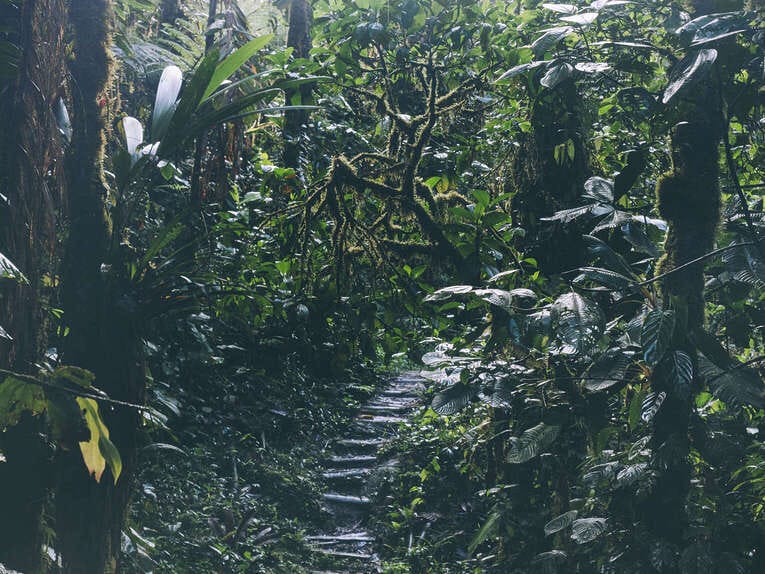
Mauricio is one of the founding members of the foundation that manages the nature reserve The story of a group of high school students is told at the end of this article
After a good meal and a first glimpse of the diversity of birds to be found in the area, thanks to the feeders set up near the house, we set off for the reserve
It’s raining, but the path is easy Little by little, we enter what we don’t yet know to be the most beautiful forest we’ve visited so far in Colombia
The 25km trail takes us in stages to the house that serves as our accommodation in the middle of the forest This forest is magical There’s so much biodiversity here, you don’t know where to turn! The colors, too, take us by surprise Where you’d expect a simple cameo of green, this forest has something extra Hues of reds, oranges and yellows jump out at us, giving this primary forest a unique atmosphere The amount of moss and lichen is simply breathtaking
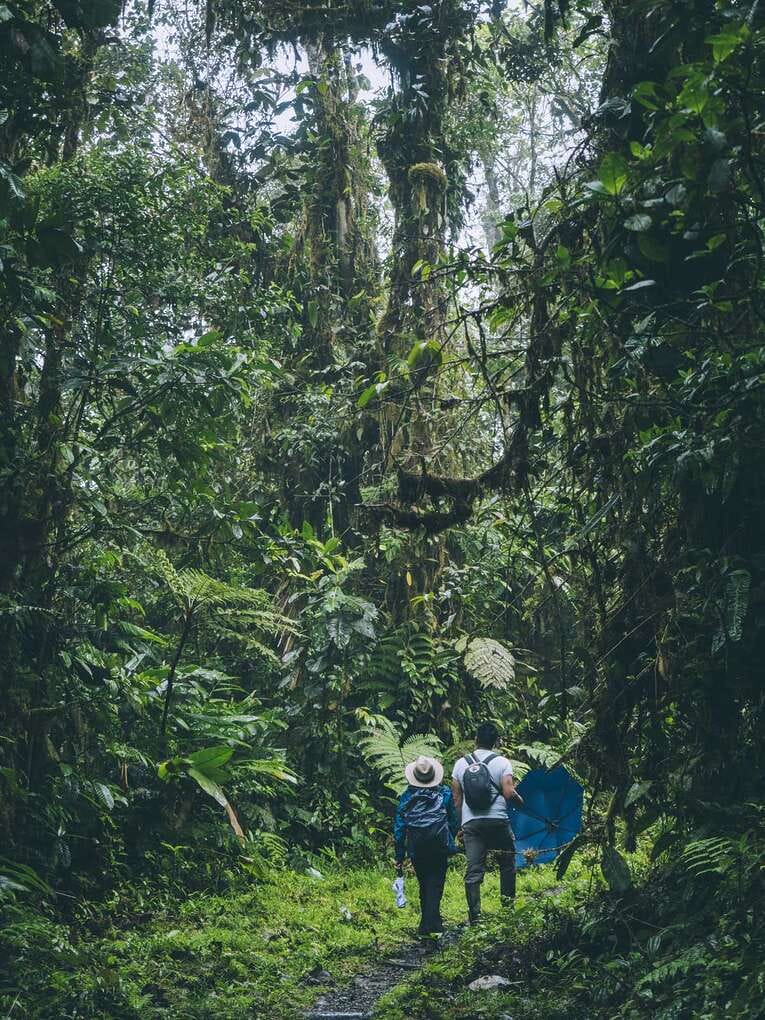
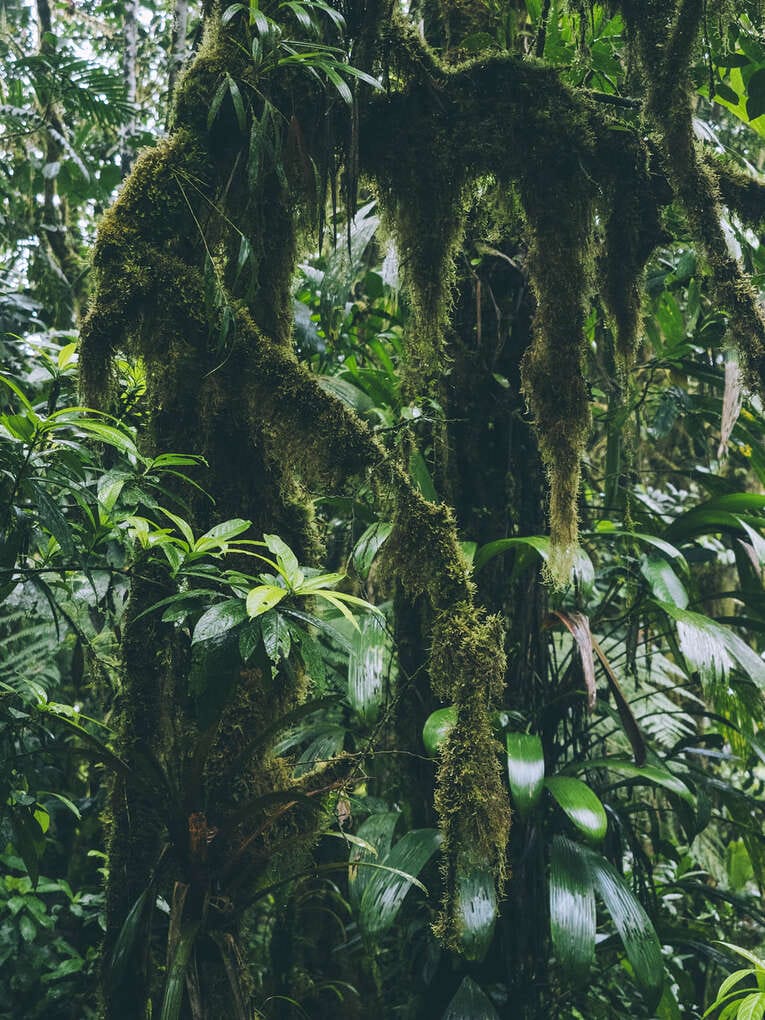
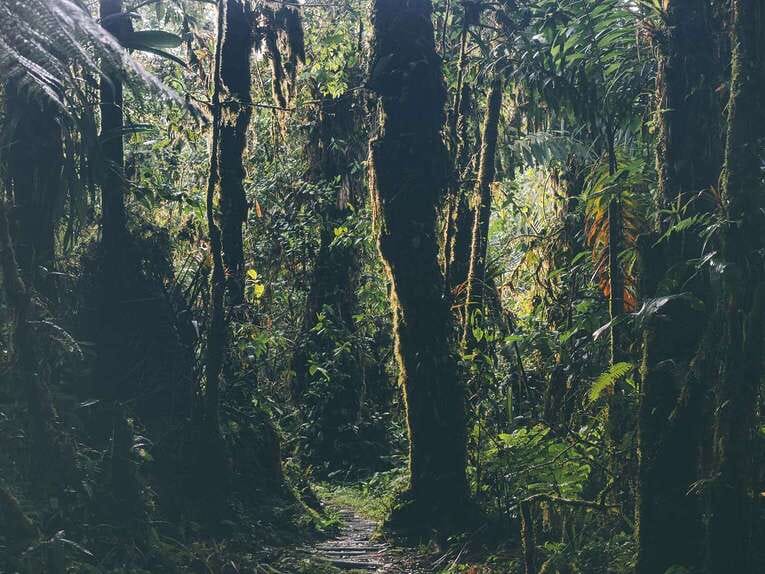
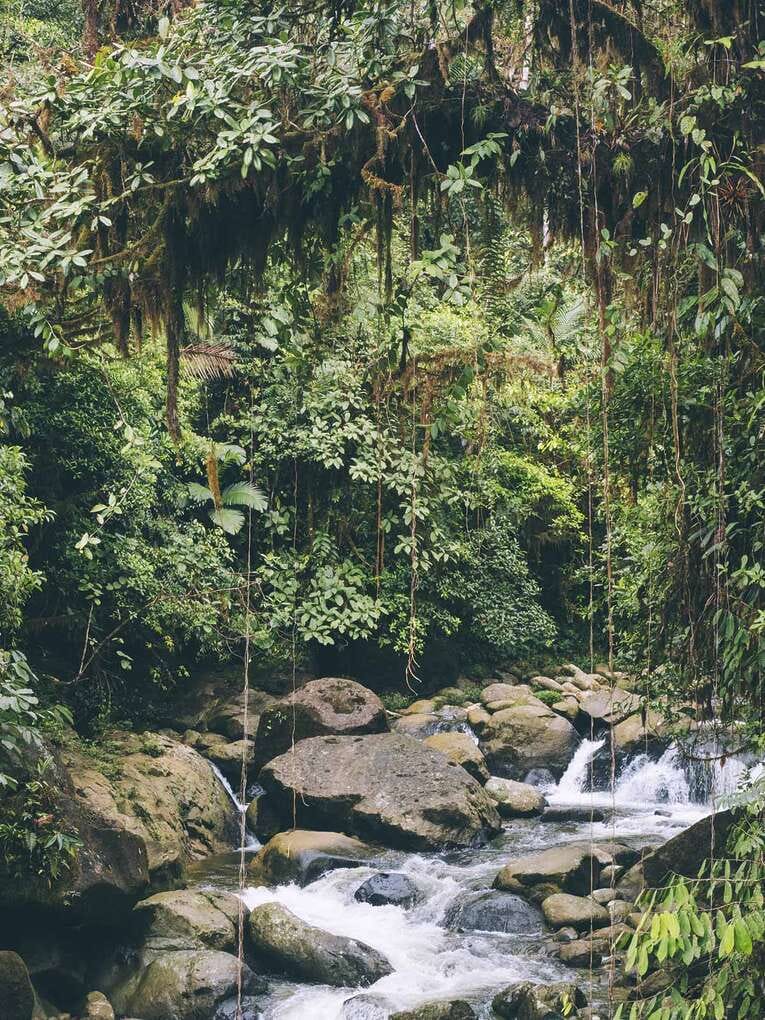
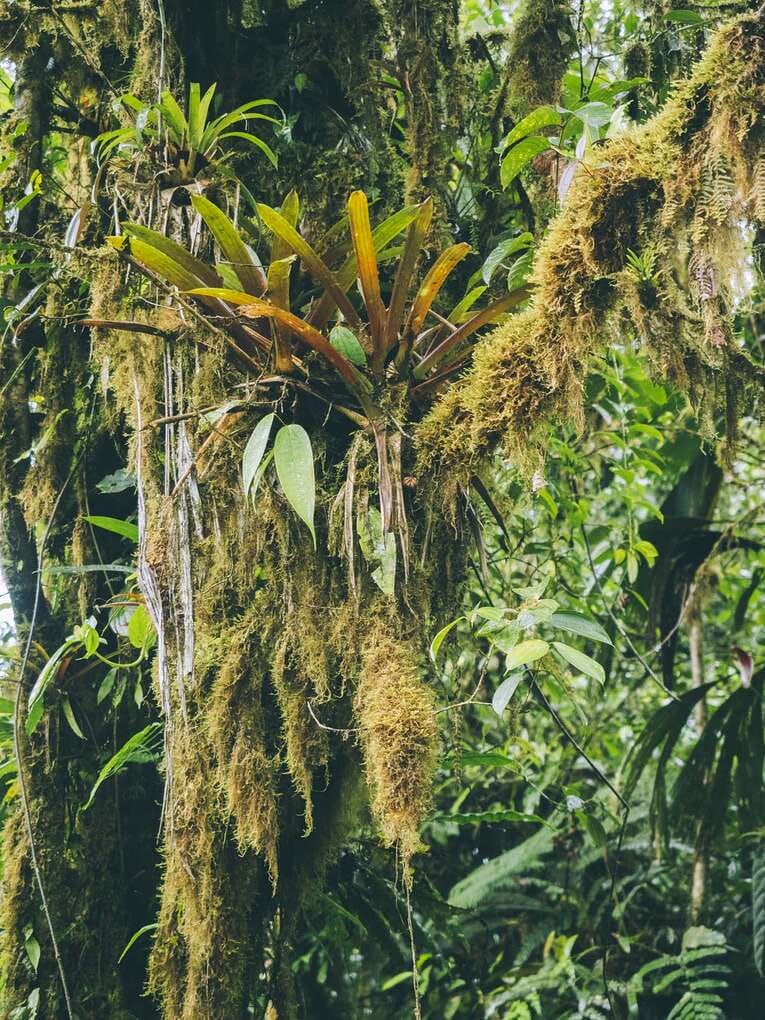
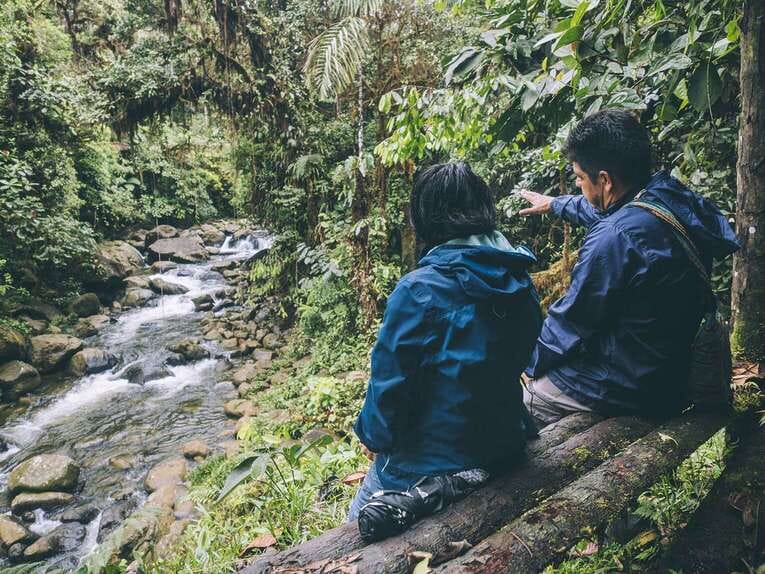
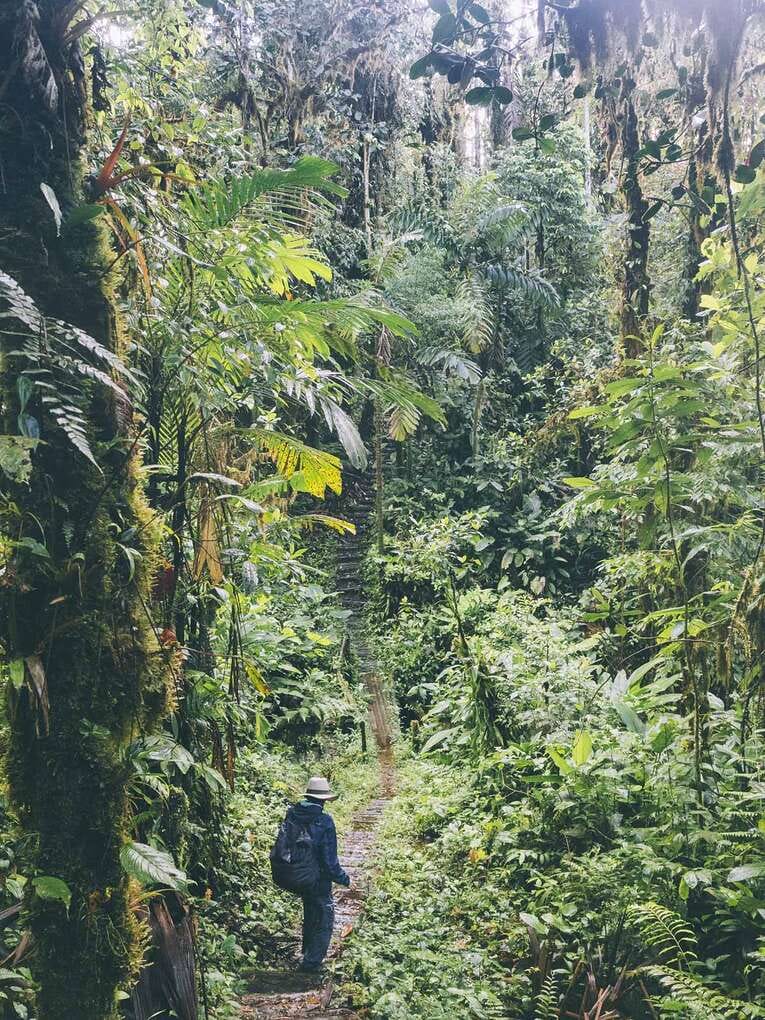
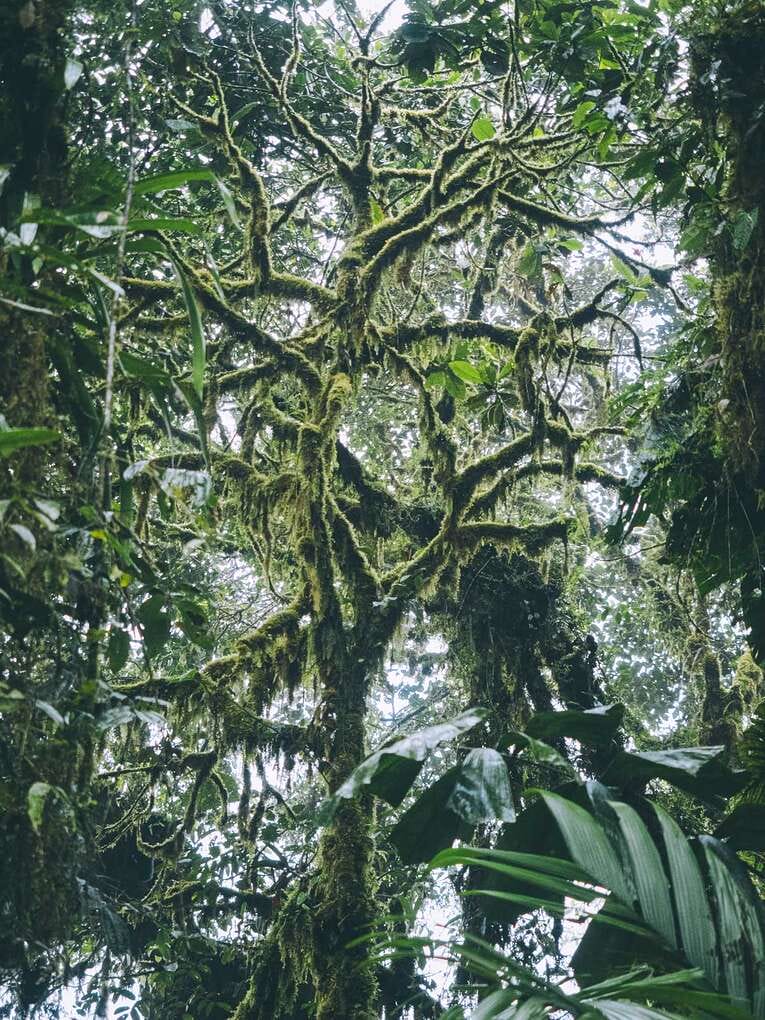
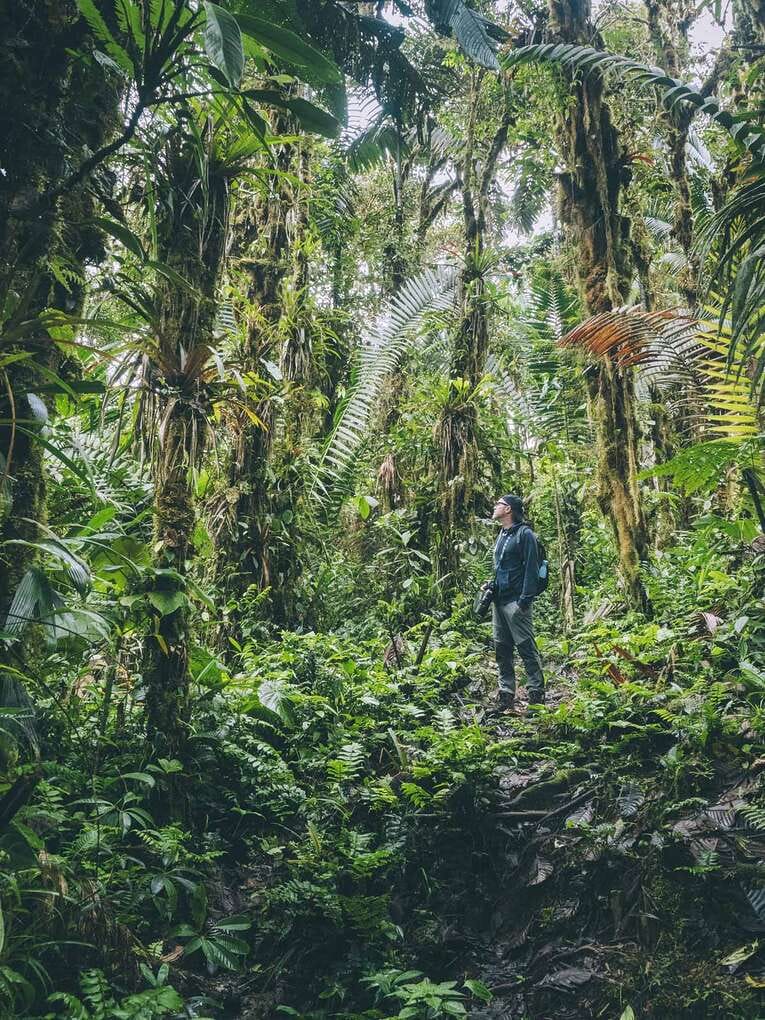
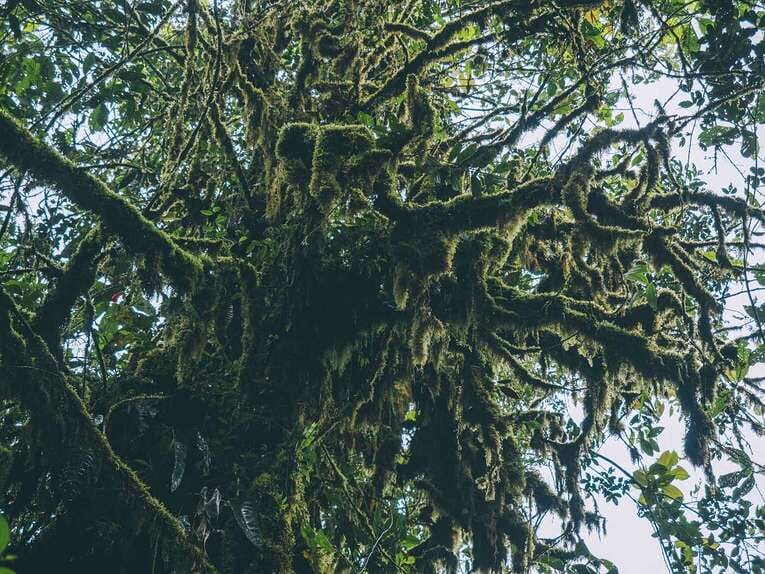
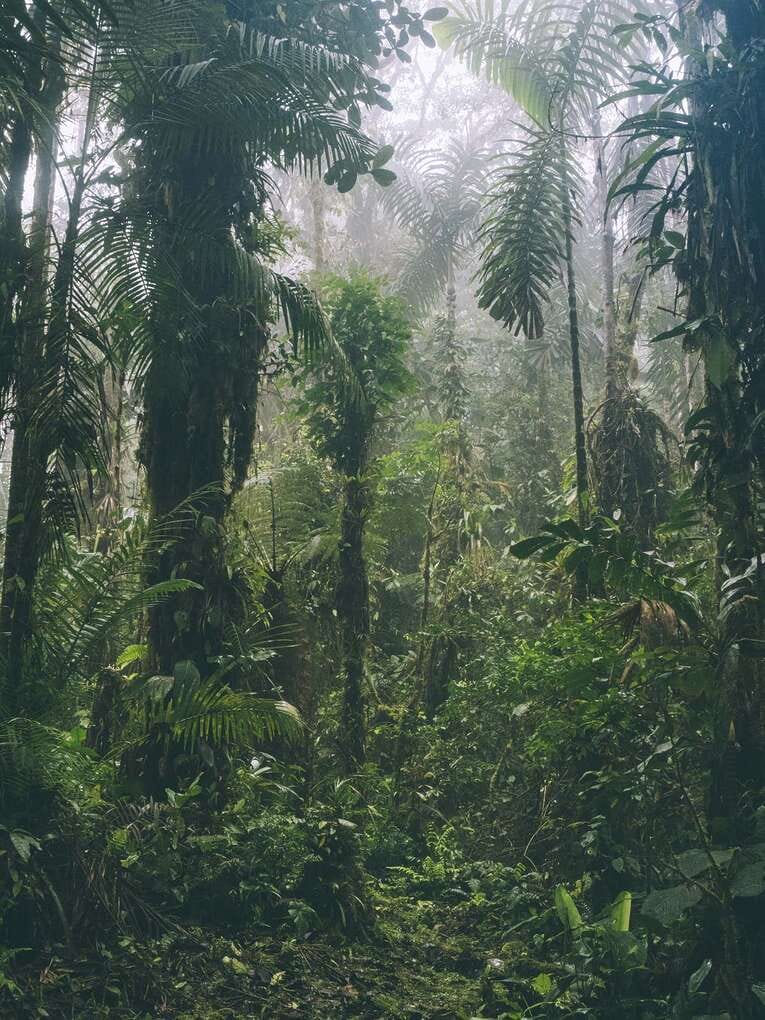
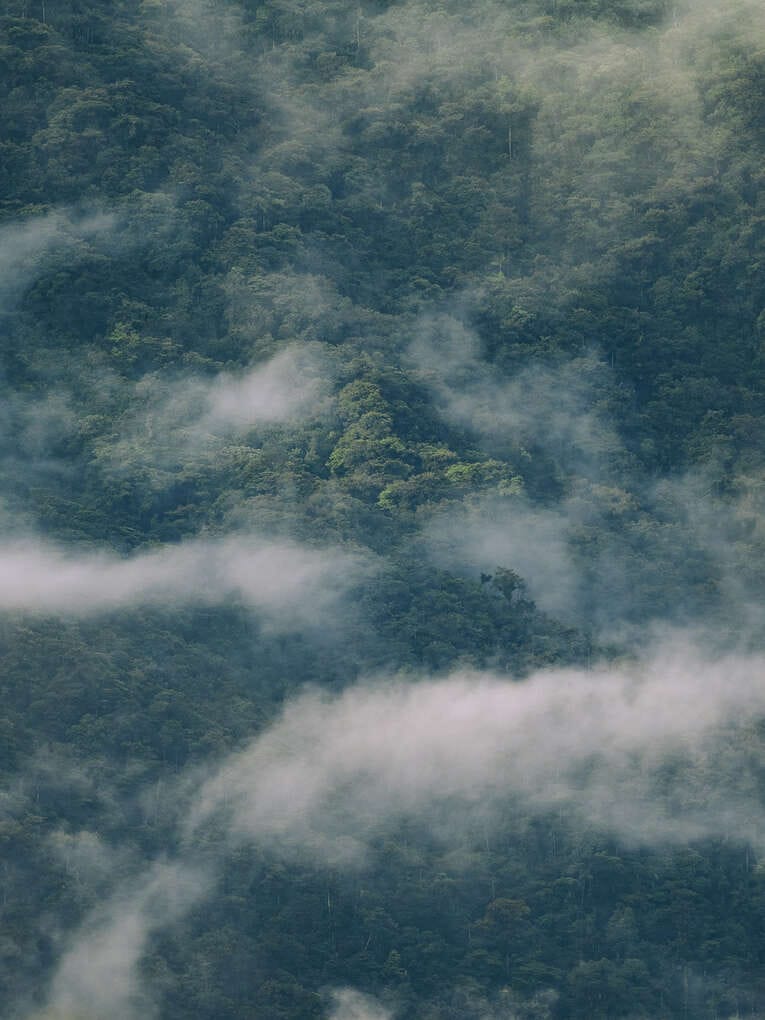
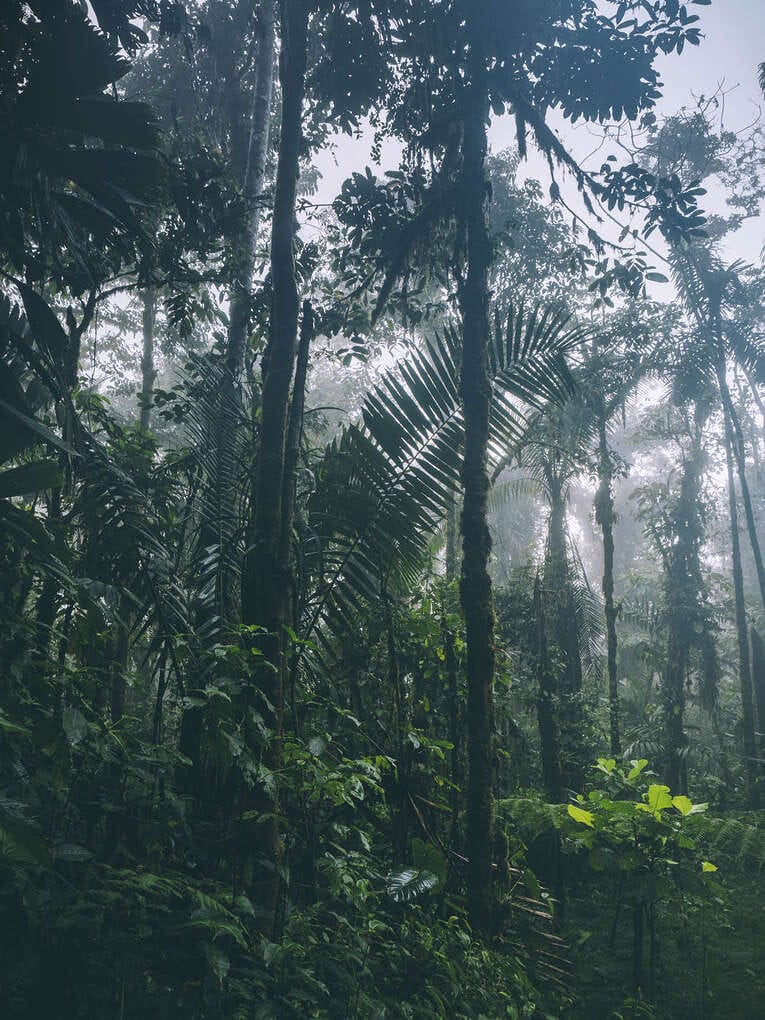
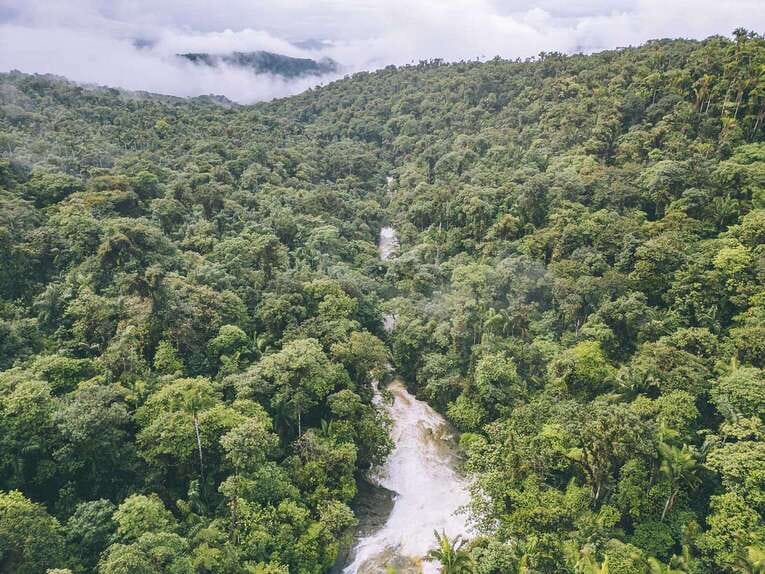
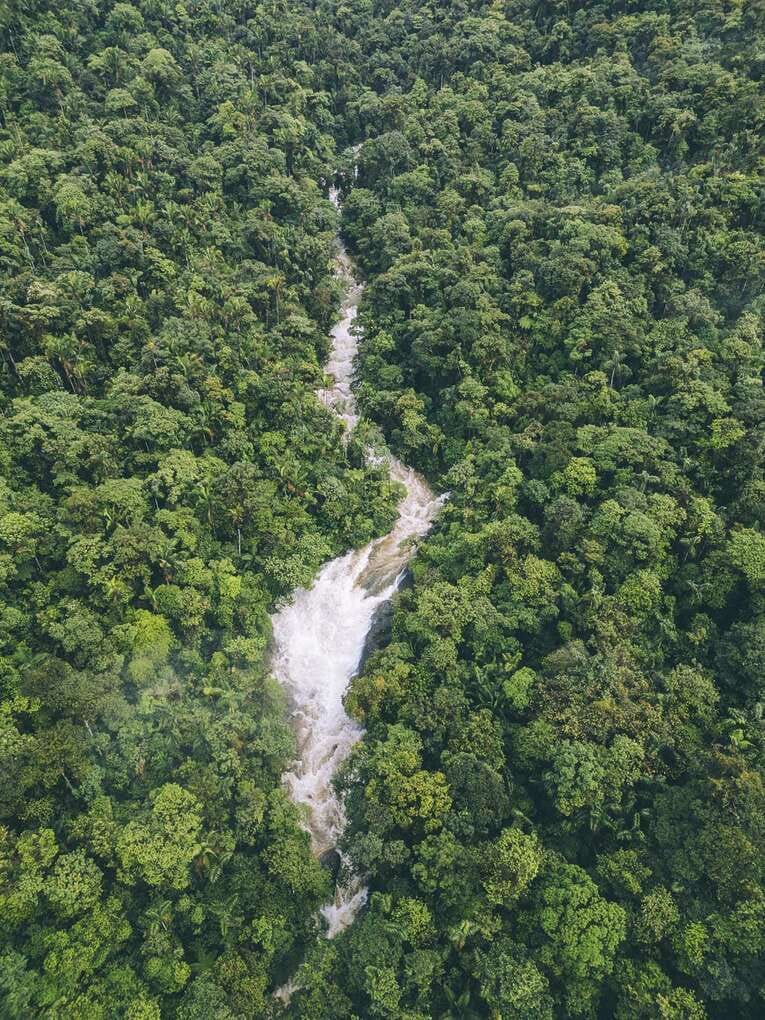
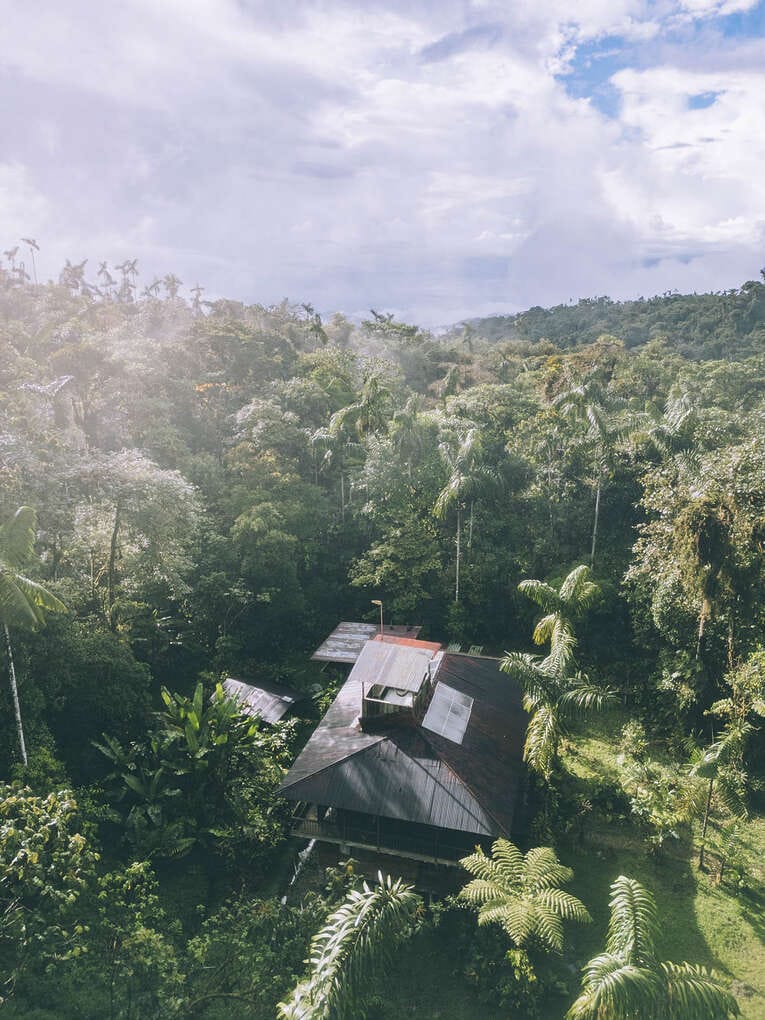
A real eye-opener!
Mauricio is a wellspring of knowledge, and it has to be said that this environment has been his playground ever since he was a child He tells us what makes the Rio Ñambi nature reserve so special, and how scientists from all over the world have made it a favorite place to study
We finally arrive at the hut where we’ll be sleeping Simple but welcoming, with shared outdoor sanitary facilities and cold water, conditions are really comfortable for such a remote and difficult-to-access place!
Numerous hummingbirds surround the house On the roof, an observation platform offers 360° views of the forest, with binoculars for spotting bird species
Nightlife and bioluminescence
Rio Ñambi Nature Reserve
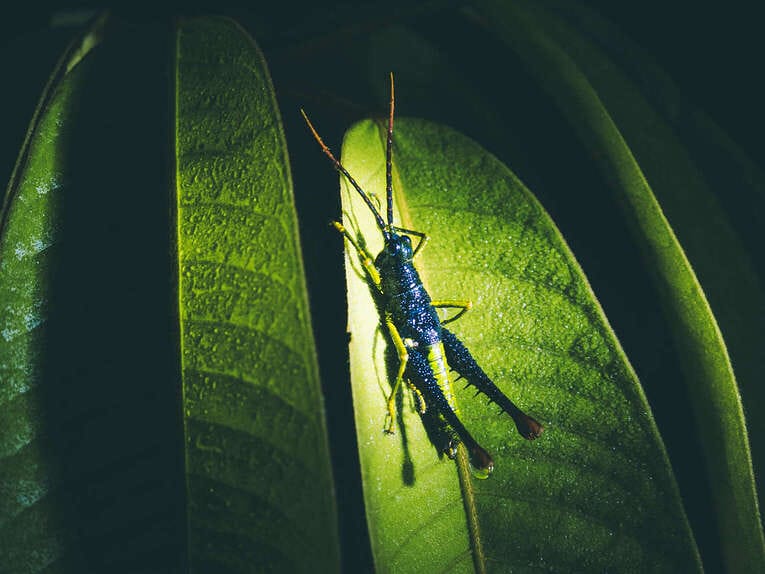
After dinner, we set off on a trail around the house to discover the nightlife of the Rio Ñambi forest
Mauricio has been talking about “fluorescent mushrooms” all day, so curiosity is running high! But we’re still a long way from understanding what this is all about Along the way, we come across miniature frogs, lizards, fake spiders that belong more to the crab kingdom, and various species of grasshopper, each more extravagant than the last!
Then Mauricio asks us to switch off our headlamps
The darkness is total
Our eyes gradually become accustomed to the night
And all around us, leaves and branches light up!
The show is just crazy
On the way back, Mauricio lights a fire outside and we settle in around it, sharing a small glass of brandy Stories come to life, myths and legends of the forest, visions, spirits, everyone sharing their experiences and the mysteries that surround these places
Finally, we return home to rest our heads full of images of nature’s unique spectacle
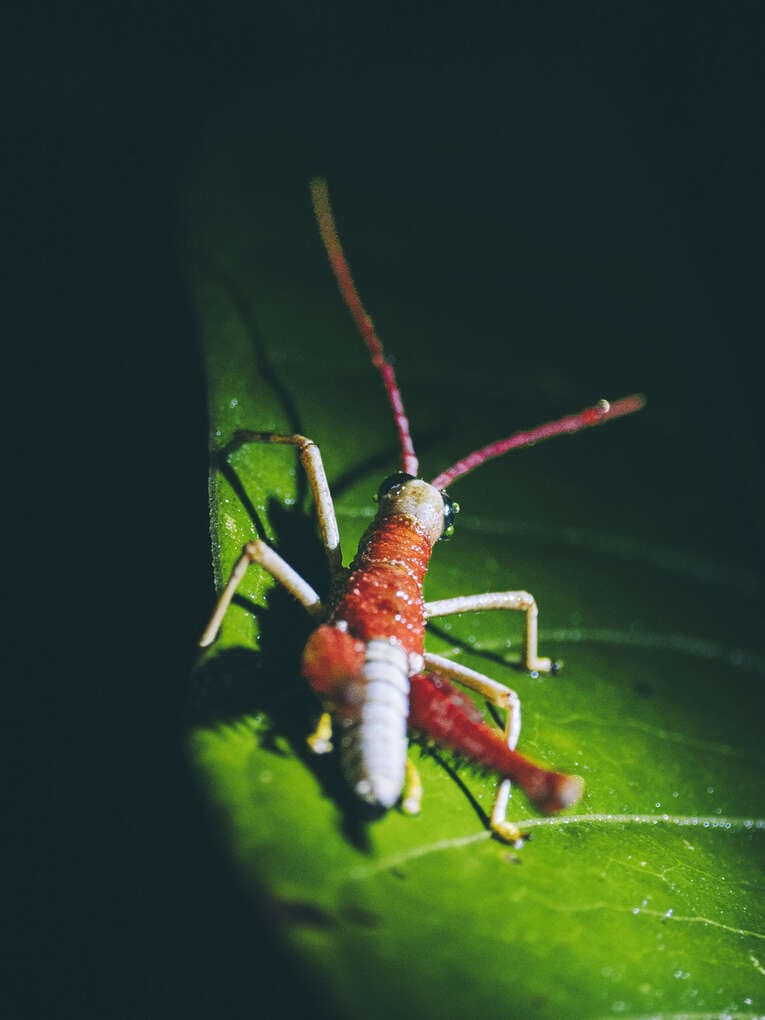
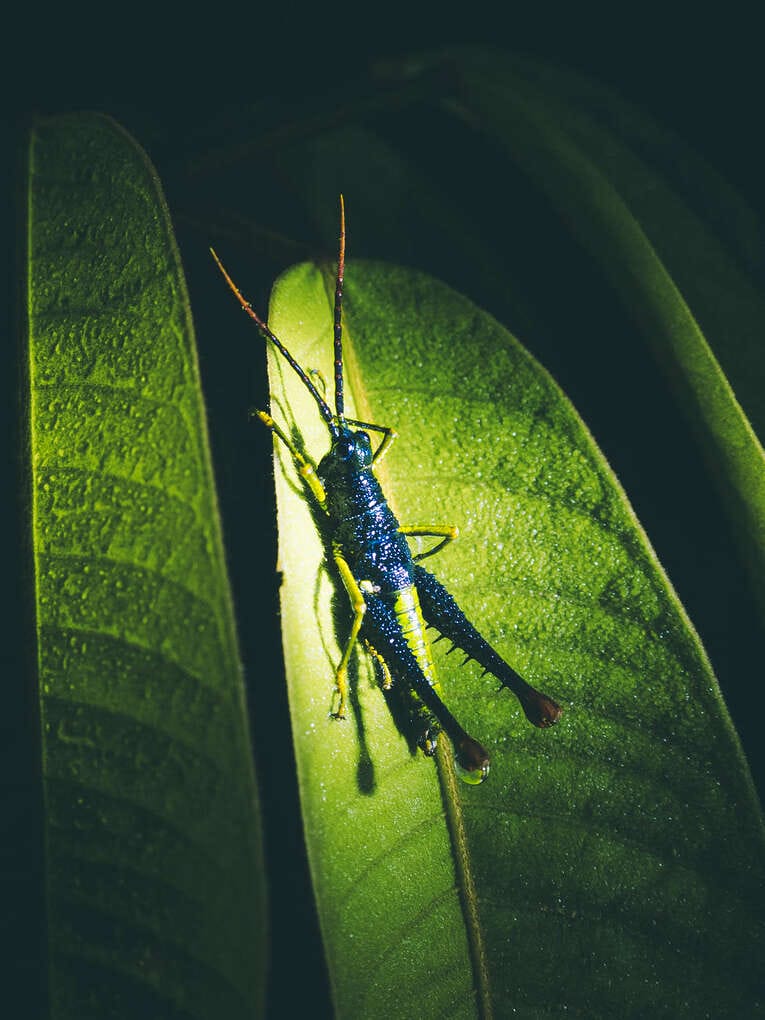
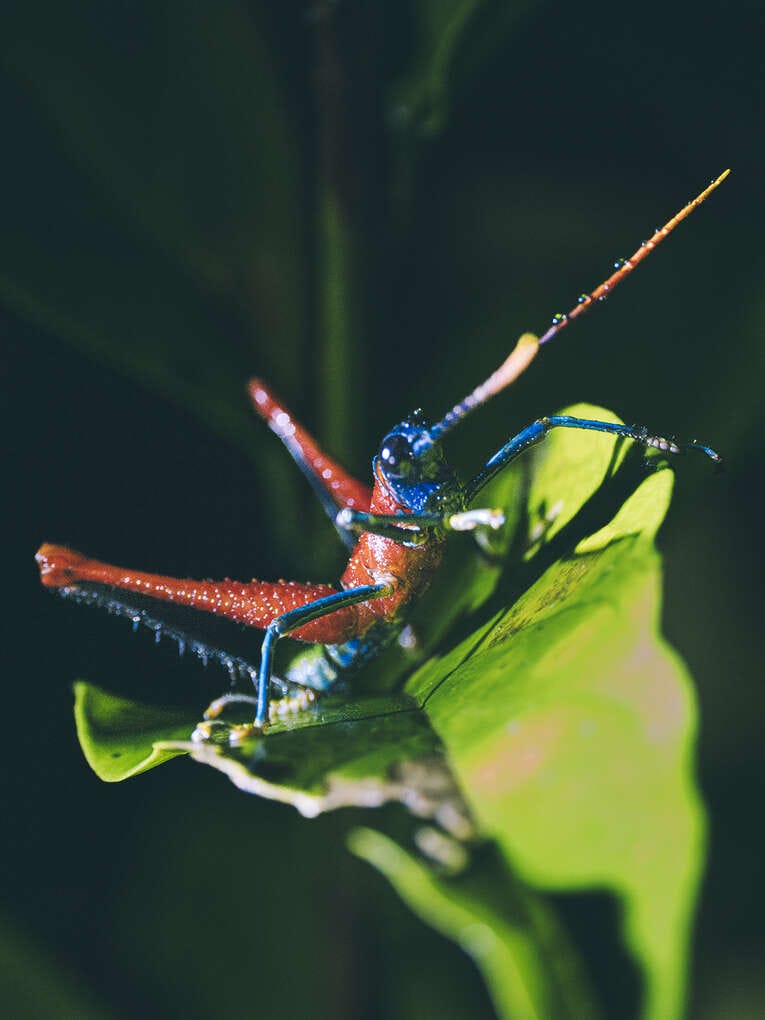
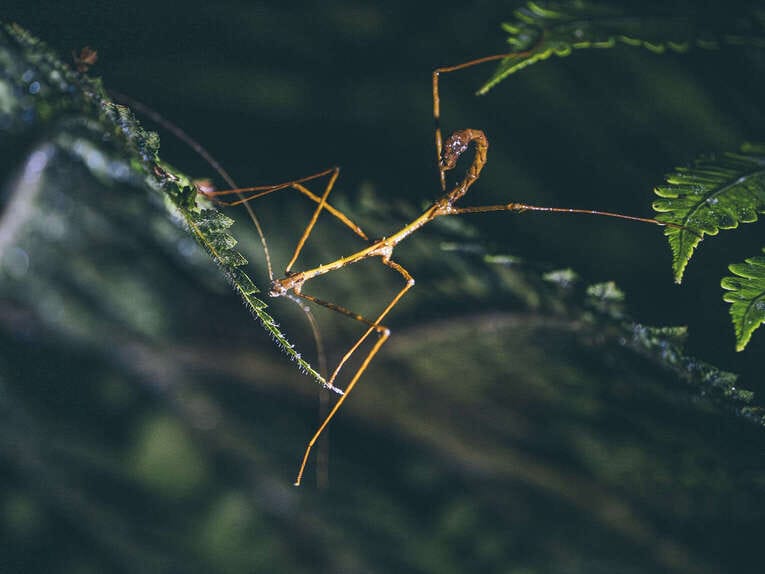
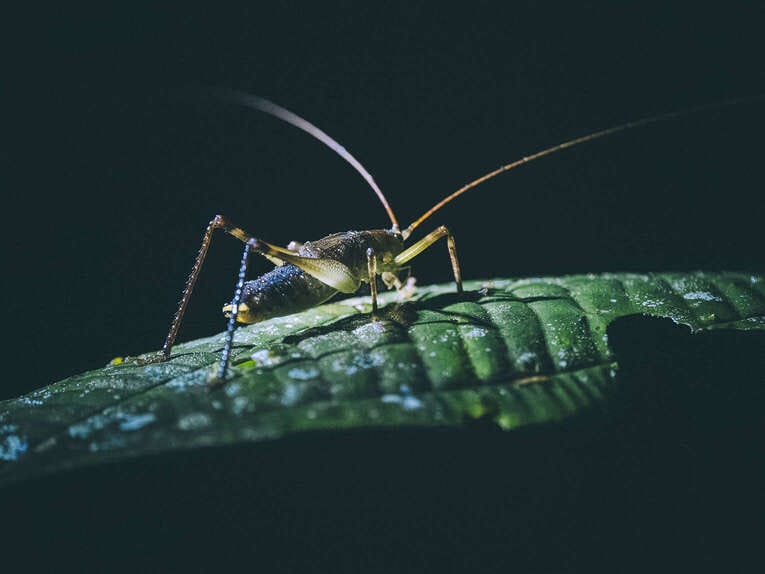
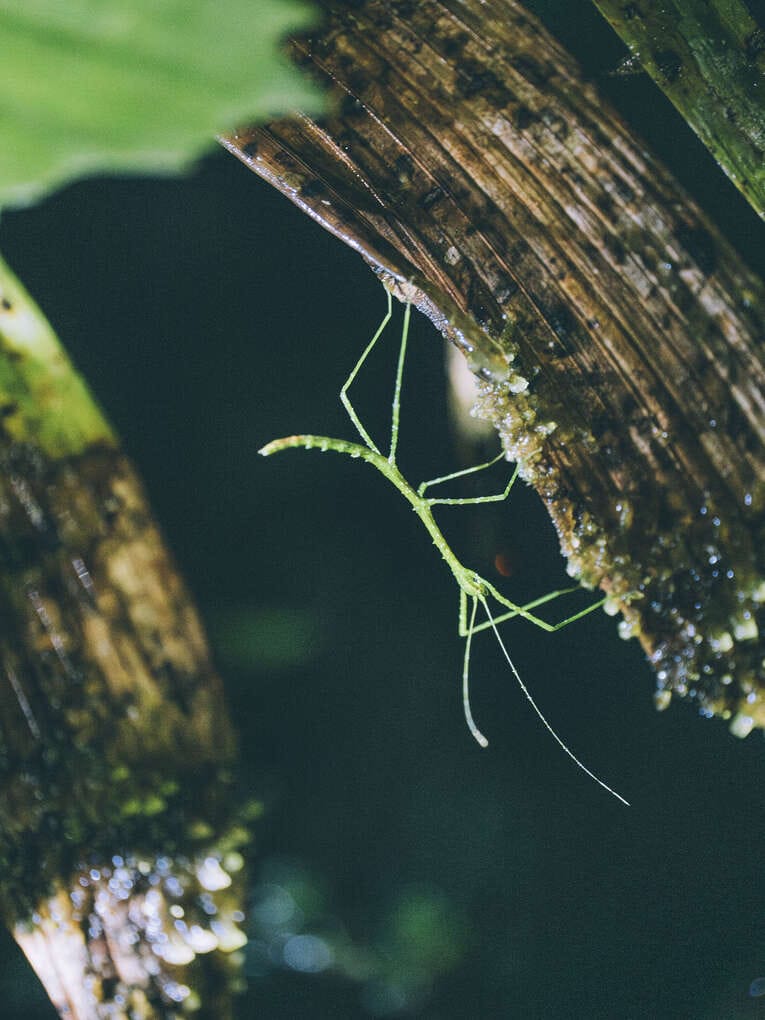
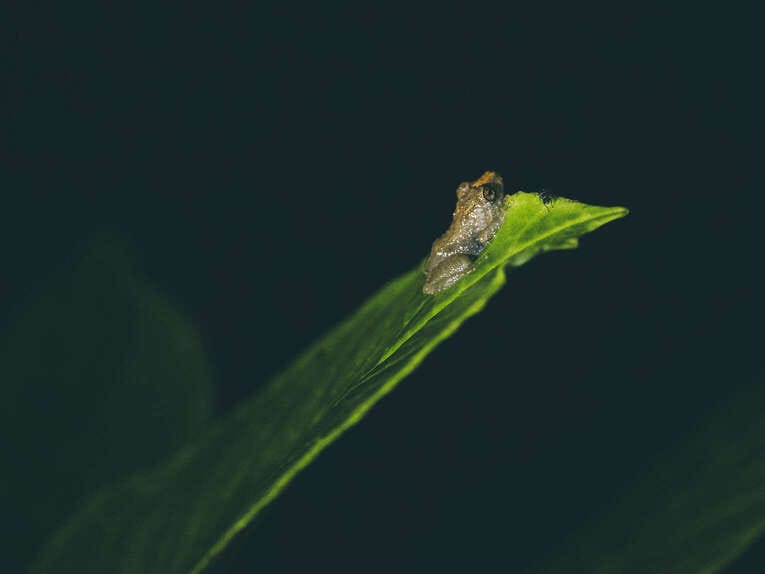
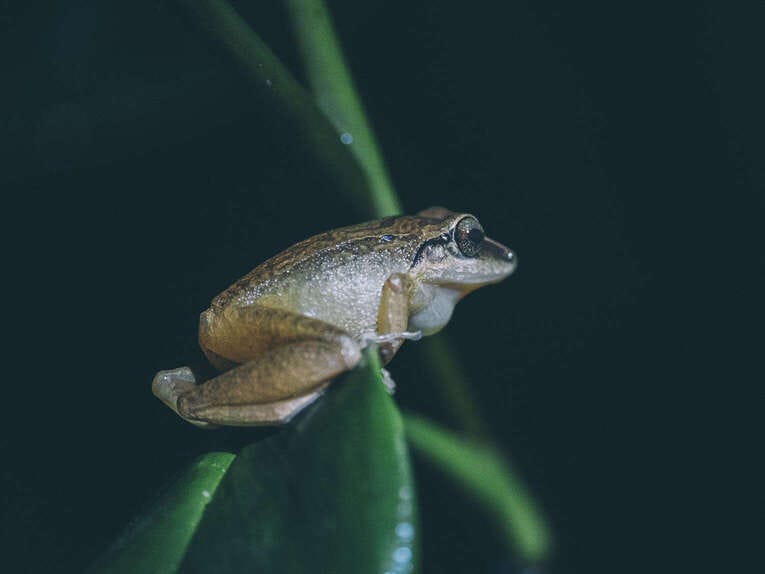
Good to know
Rio Ñambi, the crazy dream of a group of high school students from Altaquer
In the early 1990s, a group of young high-school students from the village of Altaquer became interested in environmental issues and launched a number of initiatives aimed at the local population: promoting recycling, protecting the region’s animal and plant species, etc
The story goes that in 1991, a group of ornithologists from Cambridge University looking for a research site contacted the young people of Altaquer After some consideration, they decided to take the scientists to a piece of land belonging to an uncle of Mauricio and Christian, two of the founding members of the foundation The group of young people from Altaquer will assist the research for a month, the Vireo Masteri, a new species of greenfinch is discovered and the rest is history
They decide to launch a crowdfunding campaign, raise the money needed to buy the land from the Flores’ uncle, and decide to set up a foundation to manage the nature reserve on a community basis
The Rio Ñambi Nature Reserve was born!
It is the first community nature reserve in Latin America To ensure its survival over time, it belongs to each and every resident of Altaquer, whose duty it is to protect it All improvement work is carried out by the community, thanks to private and public funds raised over the years
Exceptional biodiversity
Rio Ñambi Nature Reserve
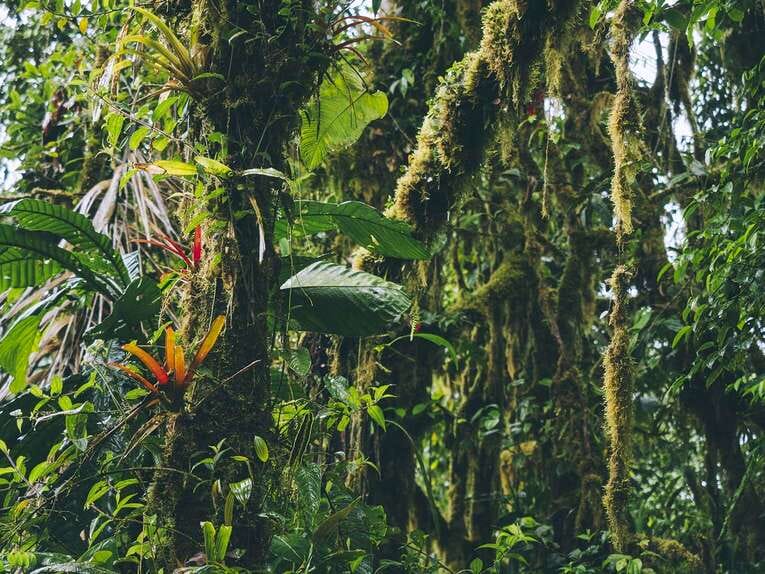
The next morning, we set off on the trail that loops around the hut and joins the river, Río Ñambí, which runs through the reserve
Once again, we were amazed by the beauty of this forest and the abundance of vegetation We discover some of the smallest orchids we’ve ever seen, come face to face with a sublime Broad-billed Motmot, and hear a Quetzal around us without unfortunately being able to see it
Located at an altitude of around 1,300 m, on the Andino-Pacific foothills, the Rio Ñambi Nature Reserve is part of the so-called Biogeographic Chocó, which stretches from the border with Panama to the border with Ecuador, and is considered one of the most important ecosystems on the planet
This privileged geographical location gives the Rio Ñambi Nature Reserve an incredible wealth of natural resources Rio Ñambi is one of the nature reserves with the highest number of endemic species on the planet, and a conservation priority (Bird-Life 2005)
With more than 2,800 hectares of primary forest, the vegetation is classified as tropical piedmont forest, with an immense variety of Rubiaceae, Araceae and Melastomataceae, forming a canopy 25 to 30 m high
With the dual influence of the Andes mountain range on one side and the Pacific Ocean on the other, the reserve is a kind of meeting point for an impressive number of bird species, including migratory species
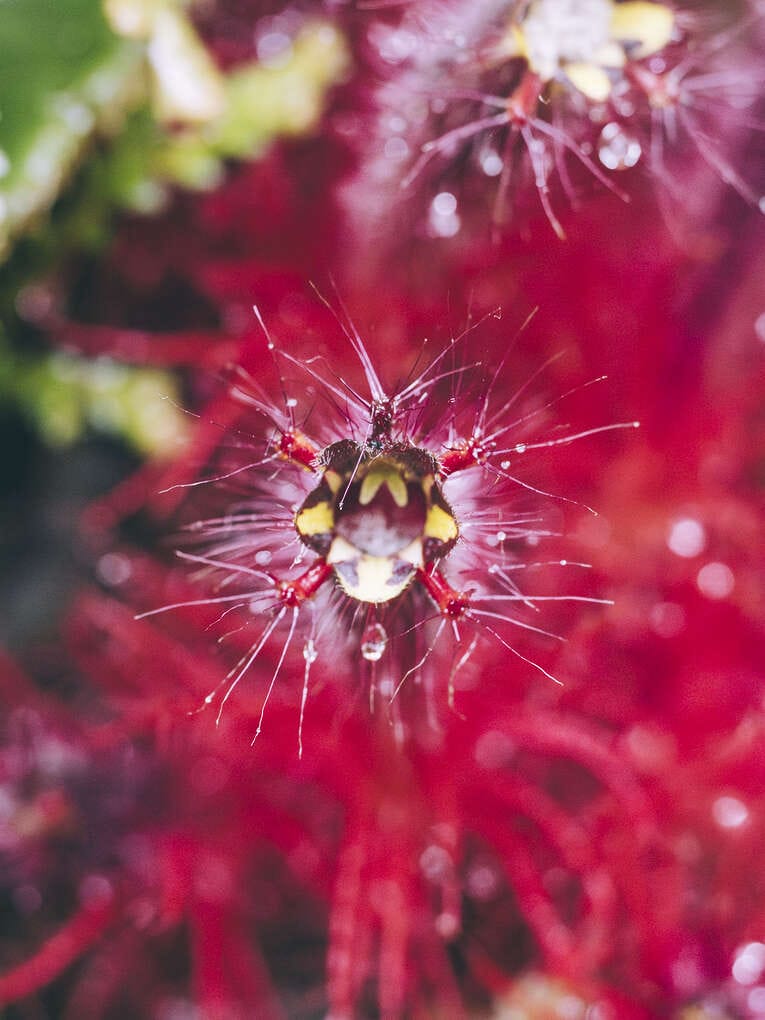
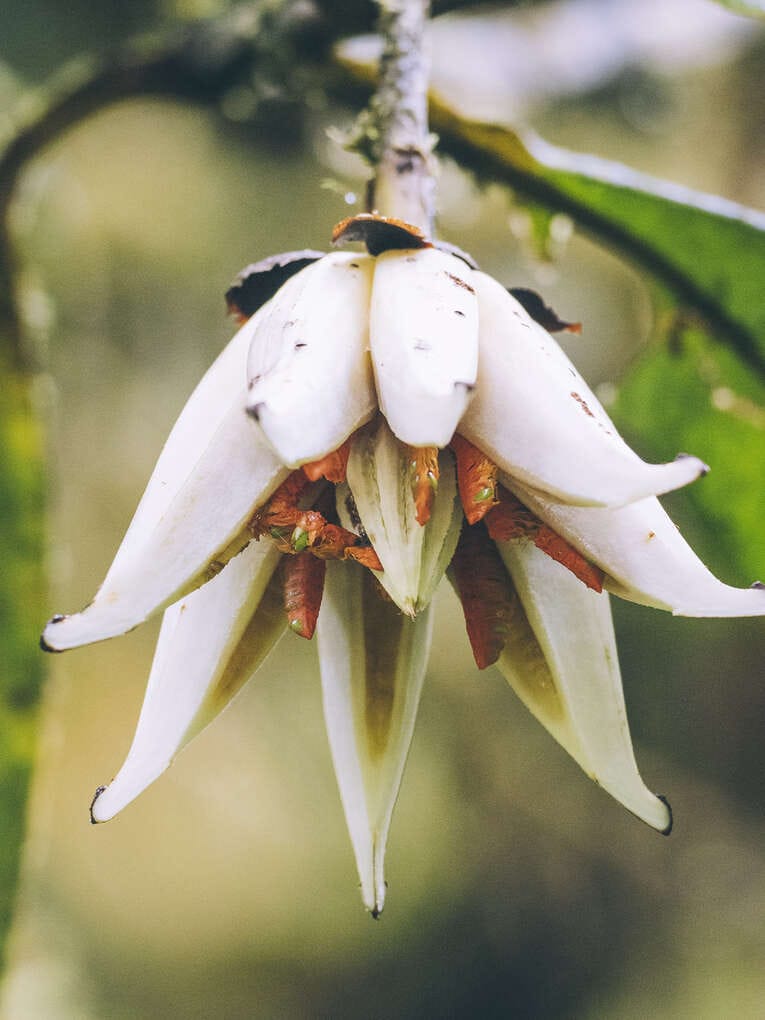
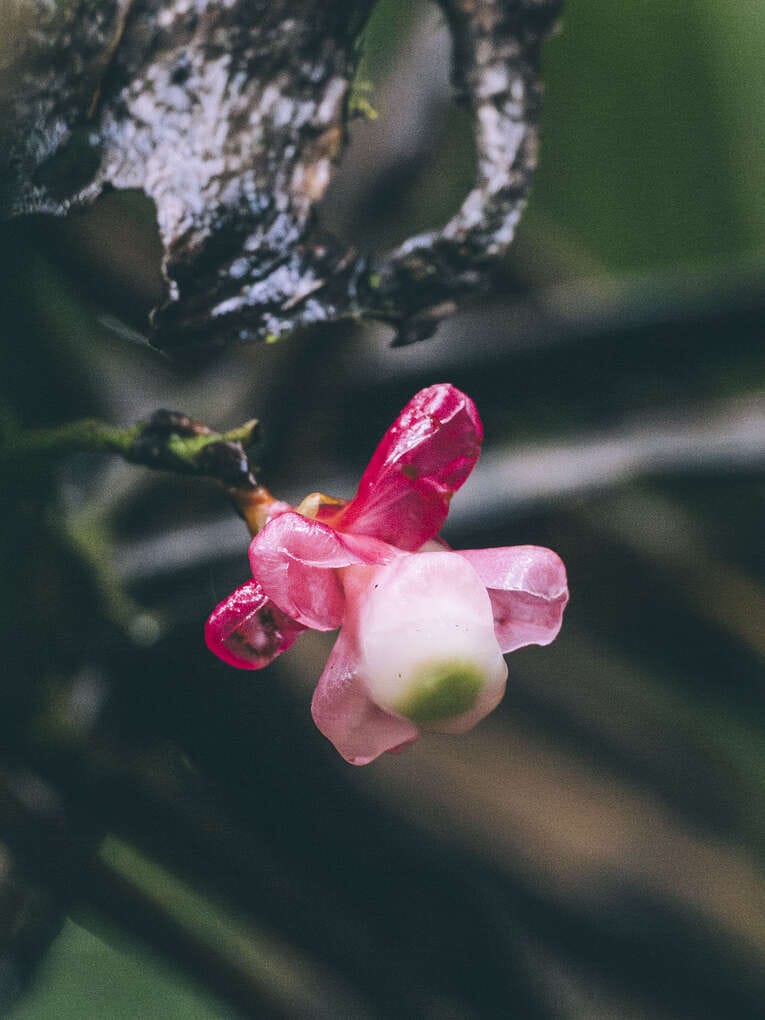
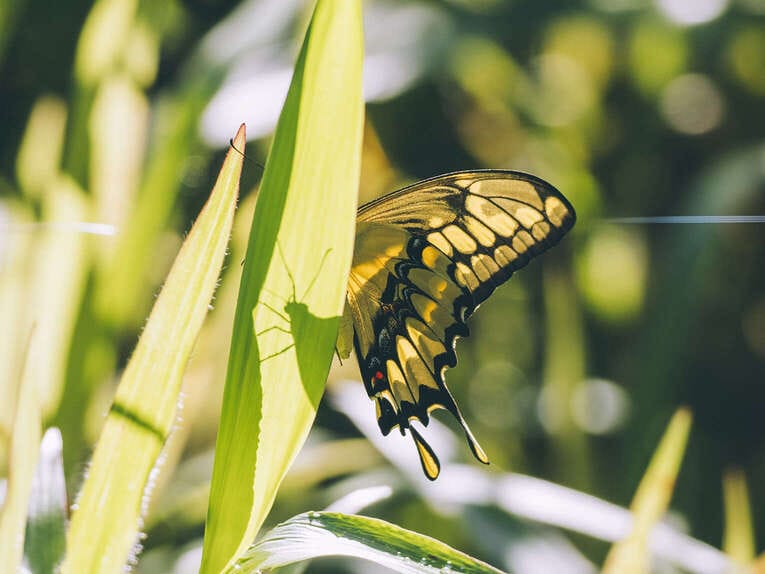
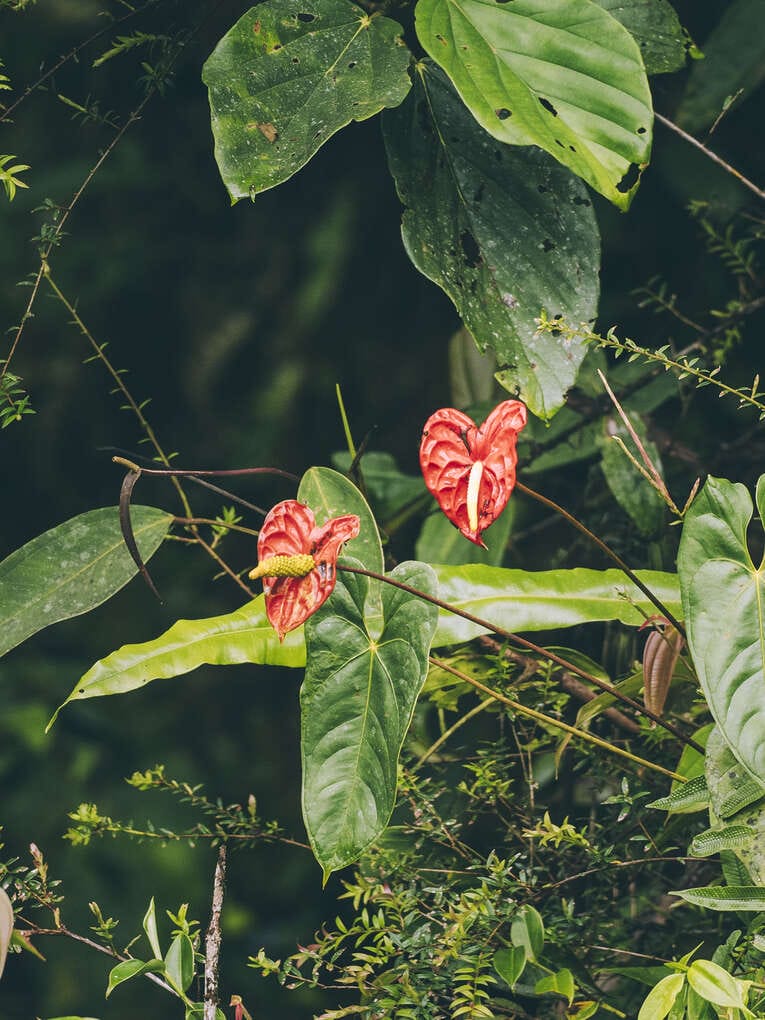
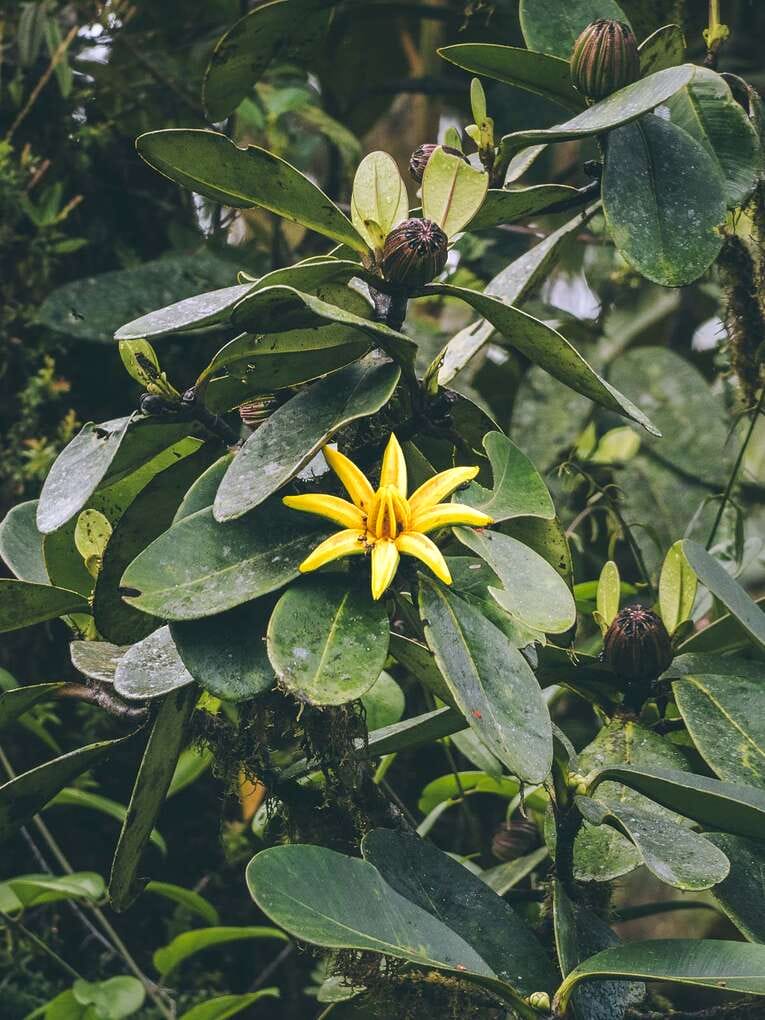
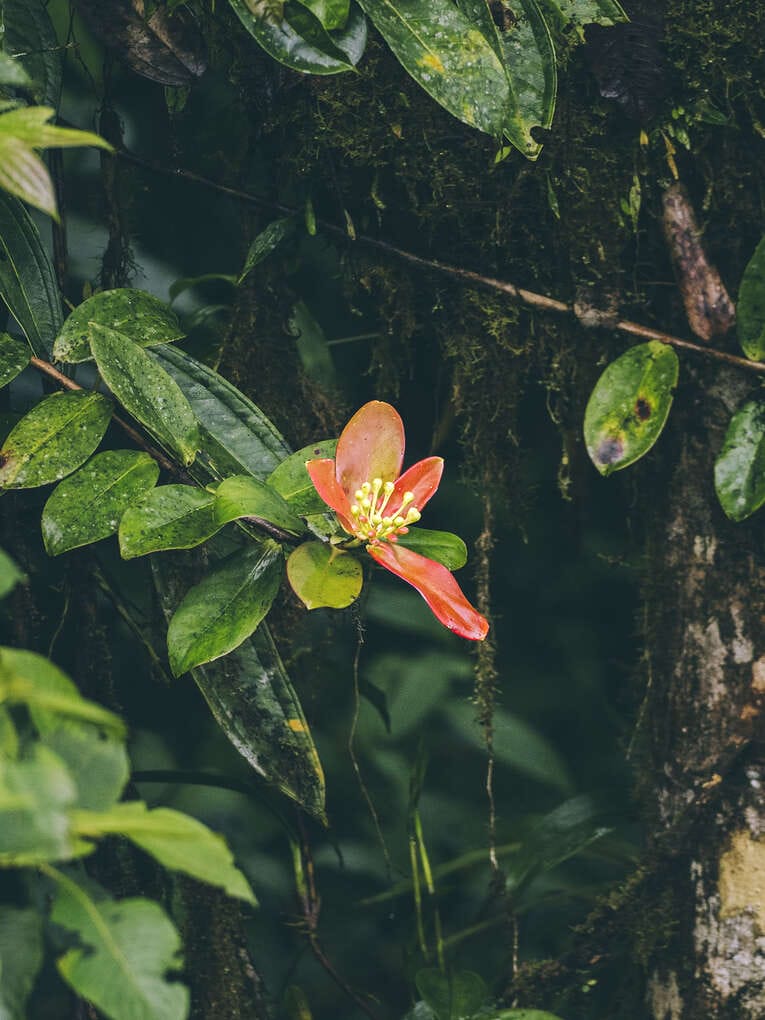
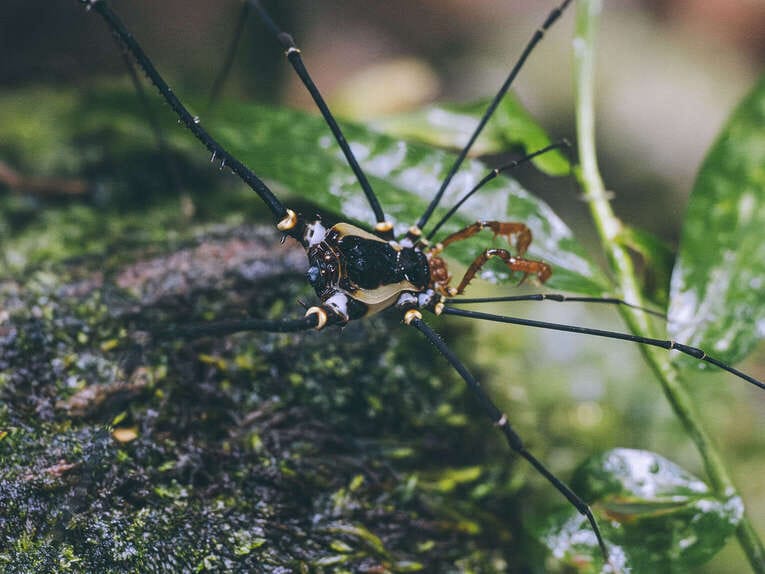
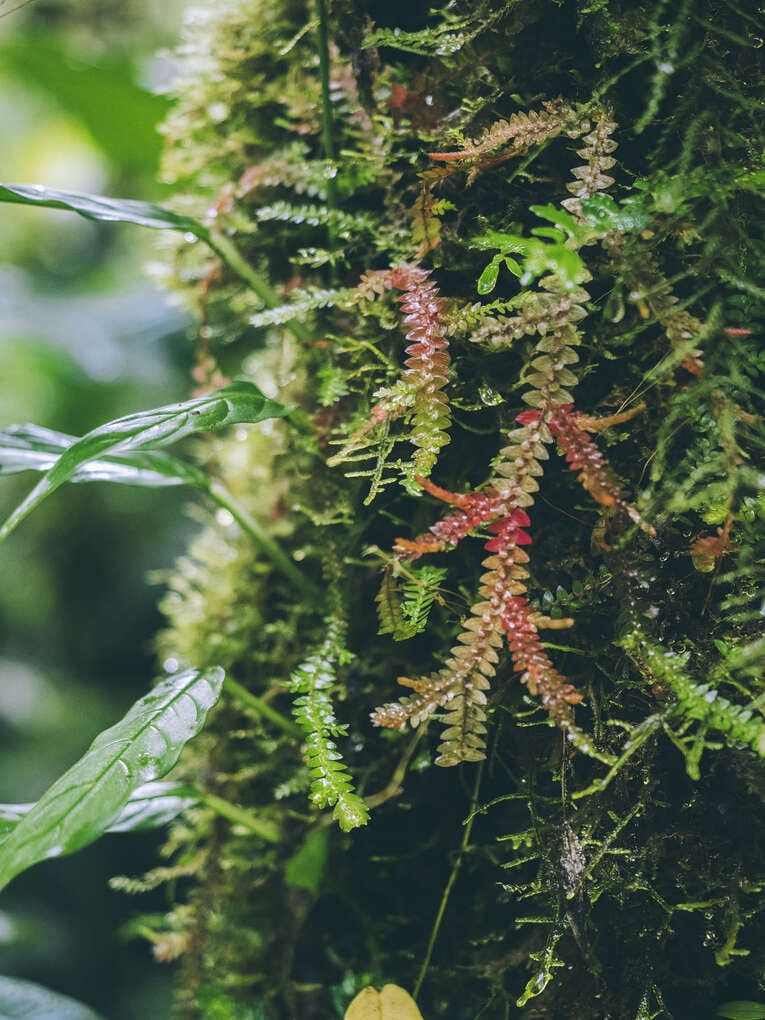
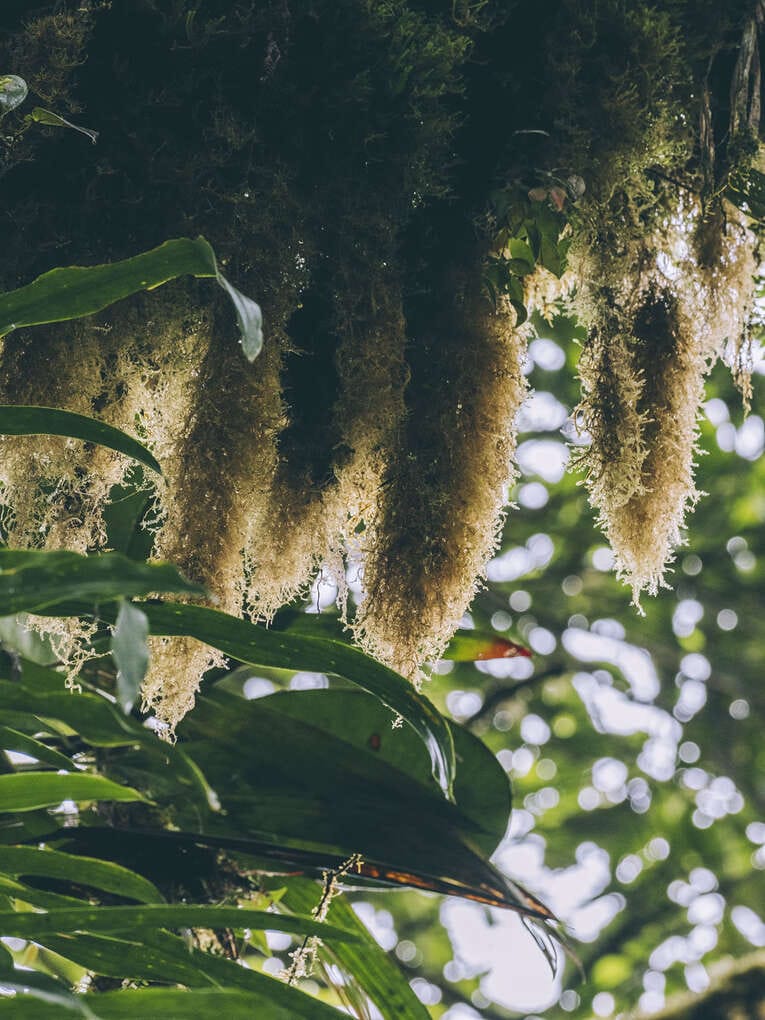
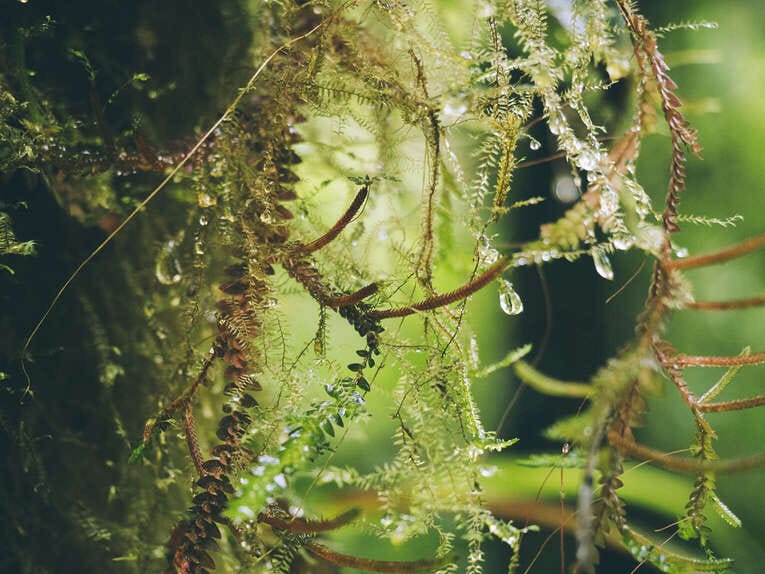
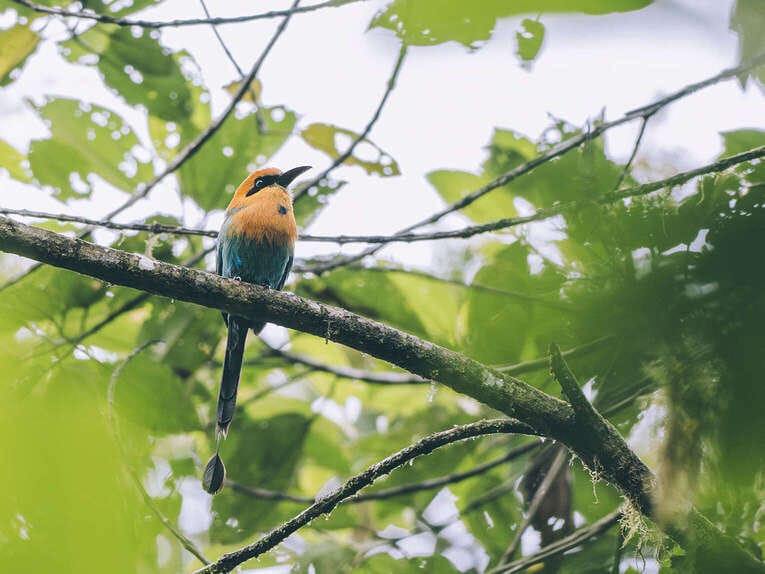
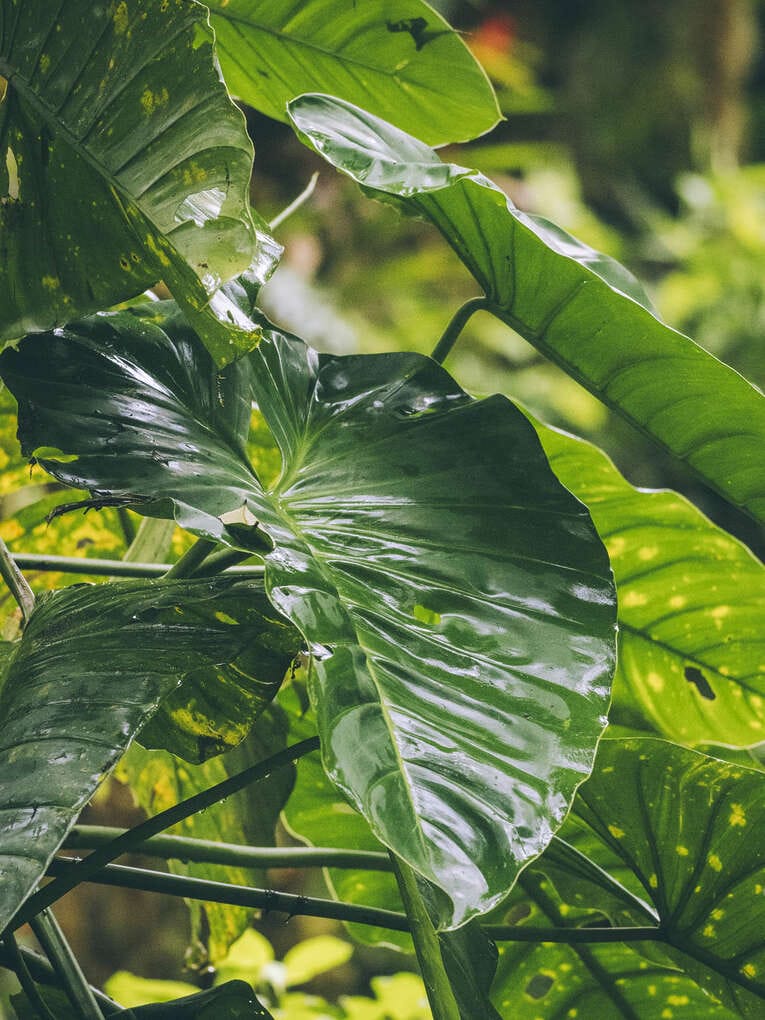
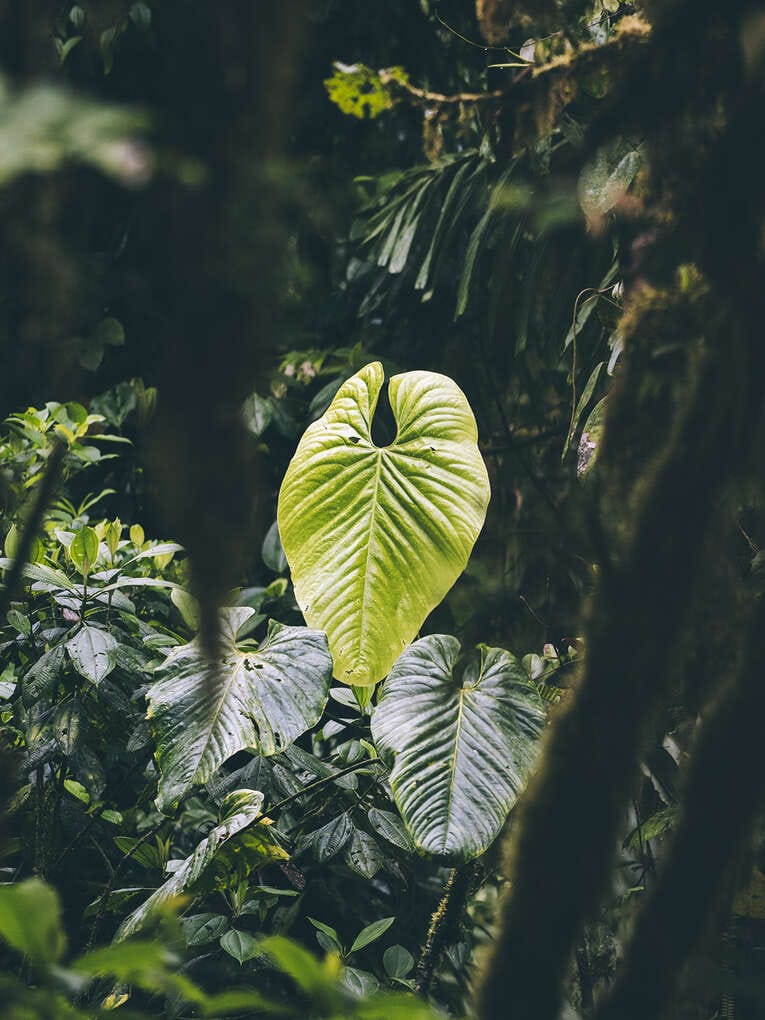
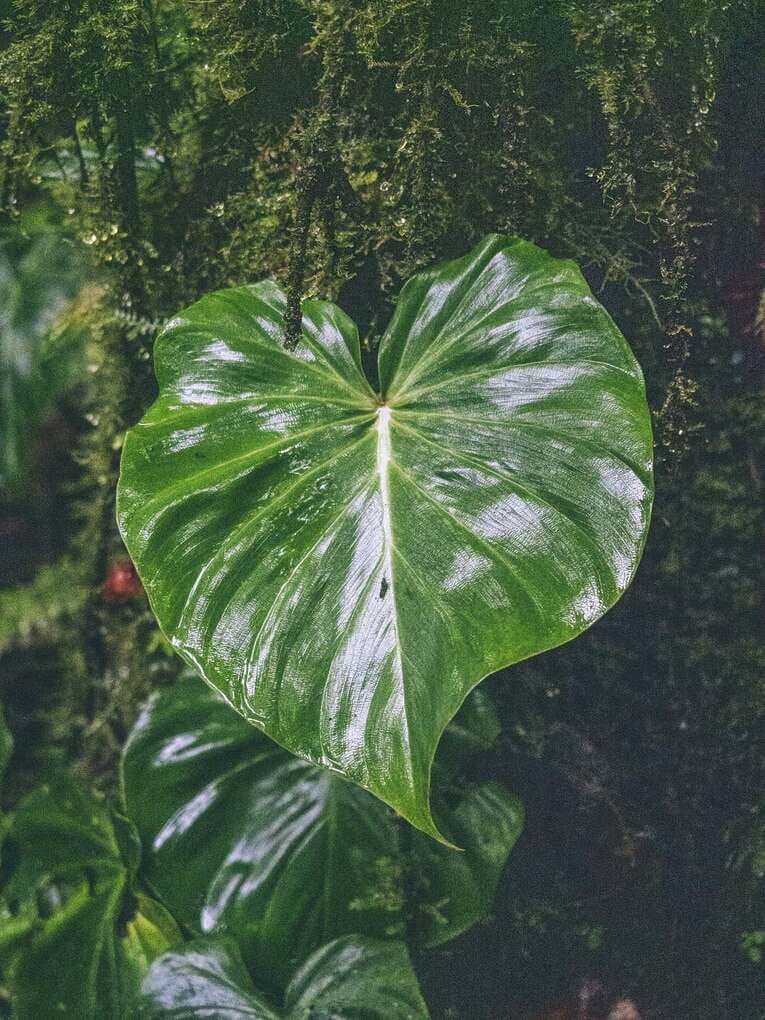
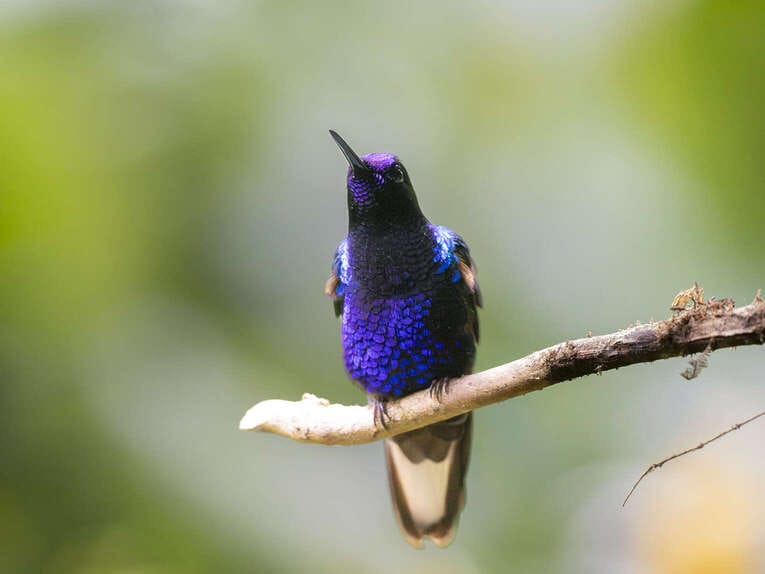
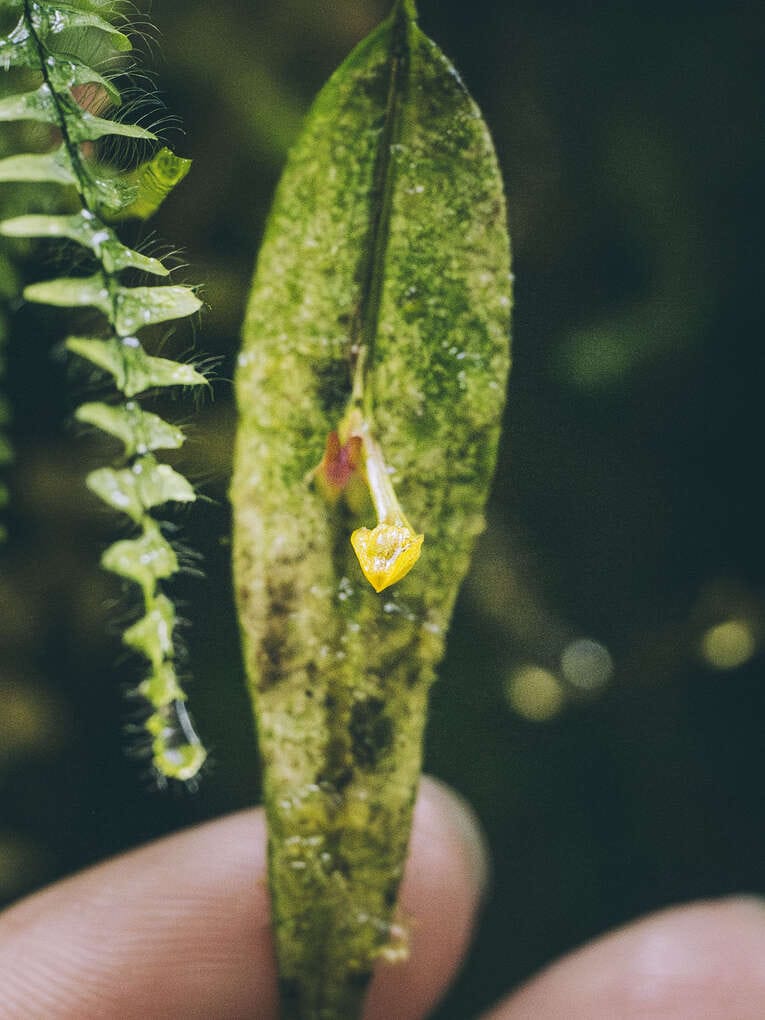
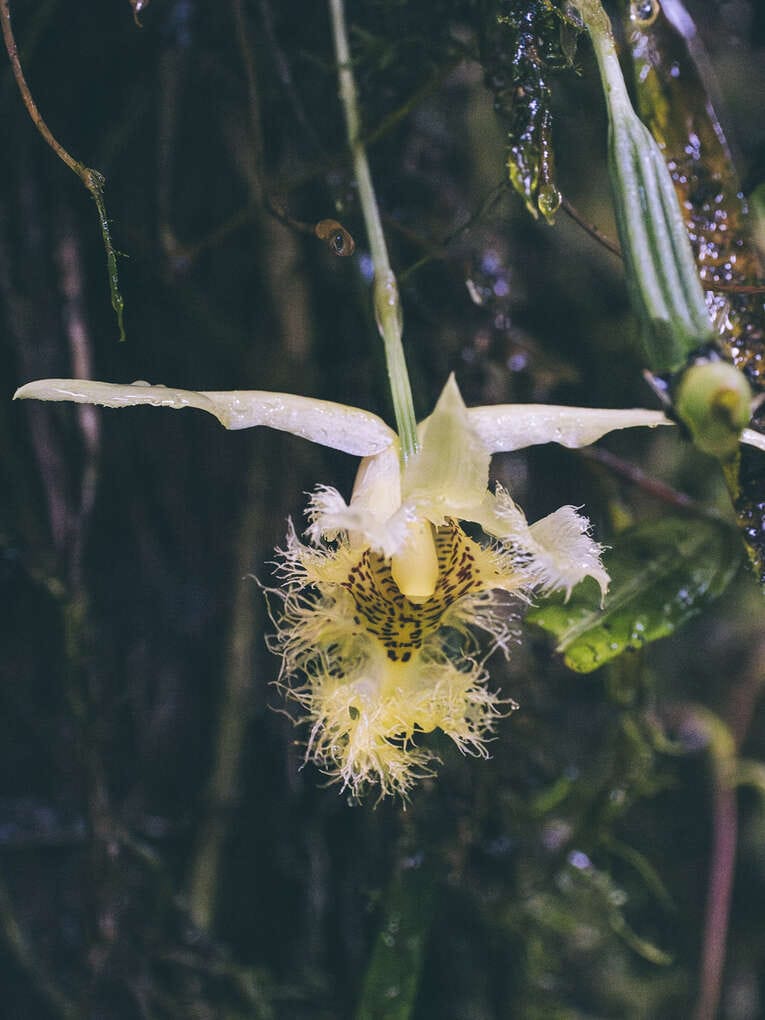
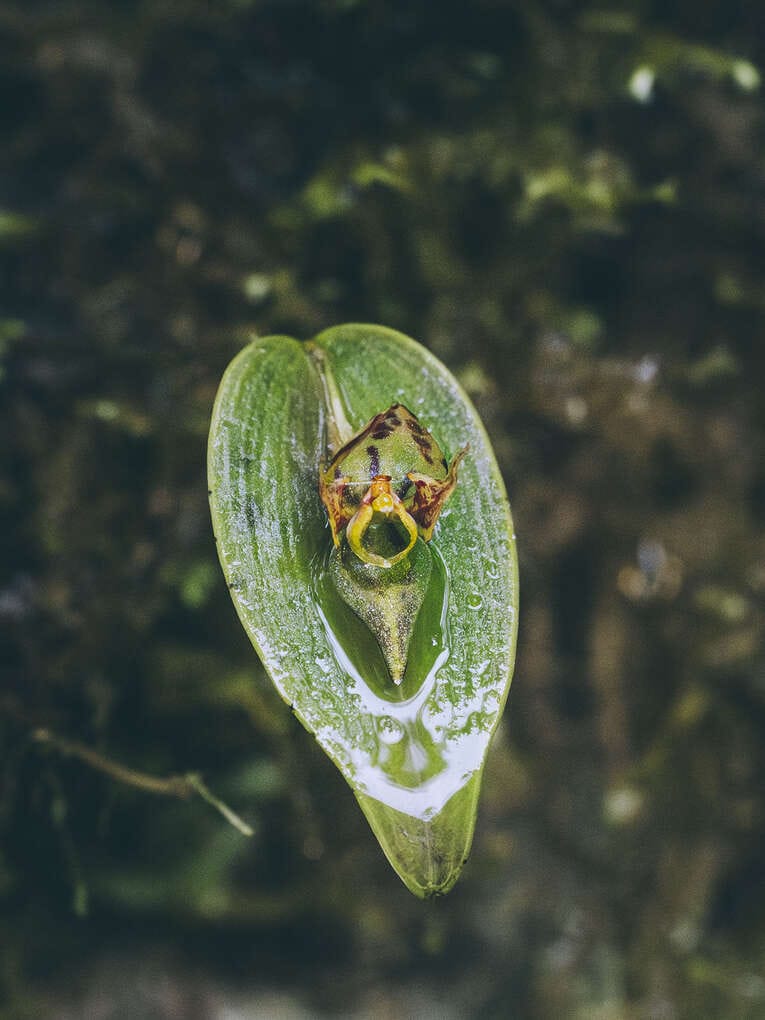
Good to know
Endemism and new species for science
Over 400 bird species have been recorded, 48 of which are considered endemic or near-endemic There are 28 endangered species protected and 32 species of hummingbird, making it one of the largest concentrations of hummingbirds in the world
Whether it’s plants, birds or amphibians, the reserve is the subject of study programs that have led to the discovery of new species for science These include the Vireo Masteri, a new species of greenfinch discovered in the reserve, and 6 new plant species, including Clusia niambiensis, a new variety of Clusiaceae named in honour of the reserve
The magic of this reserve is that there are bound to be many more scientific discoveries to come For example, in June 2024, Parablechnum givalumune, a new species of fern, was discovered at Rio Ñambi
Other nature reserves
What to do around Rio Ñambi
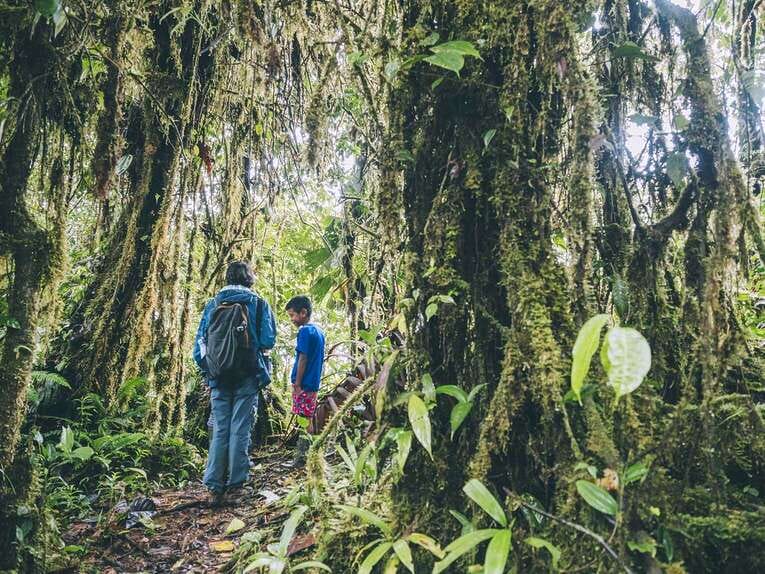
At the end of the morning, we start our descent towards the exit of the Rio Ñambi reserve, heading for two other nature reserves with the ambitious idea of being able to observe two emblematic species of the region: the Barbet Toucan or Cabezon Toucon (Semnornis ramphastinus) and the Diablito frog (Oophaga sylvatica)
Bangsias
No plunging into the forest here We’re staying on an open path that makes it easier to observe the birds perched on the edge of the forest The idea behind this visit: to catch a glimpse of two emblematic species: the Toucanet
As always with wildlife, there’s no guarantee of being able to observe them And yet
After a few hundred meters on the trail, we take a break and there, hidden just above our heads, it is!
With its incredible colors, it observes us, moving from branch to branch, before taking flight one of those suspended moments that only nature can offer!
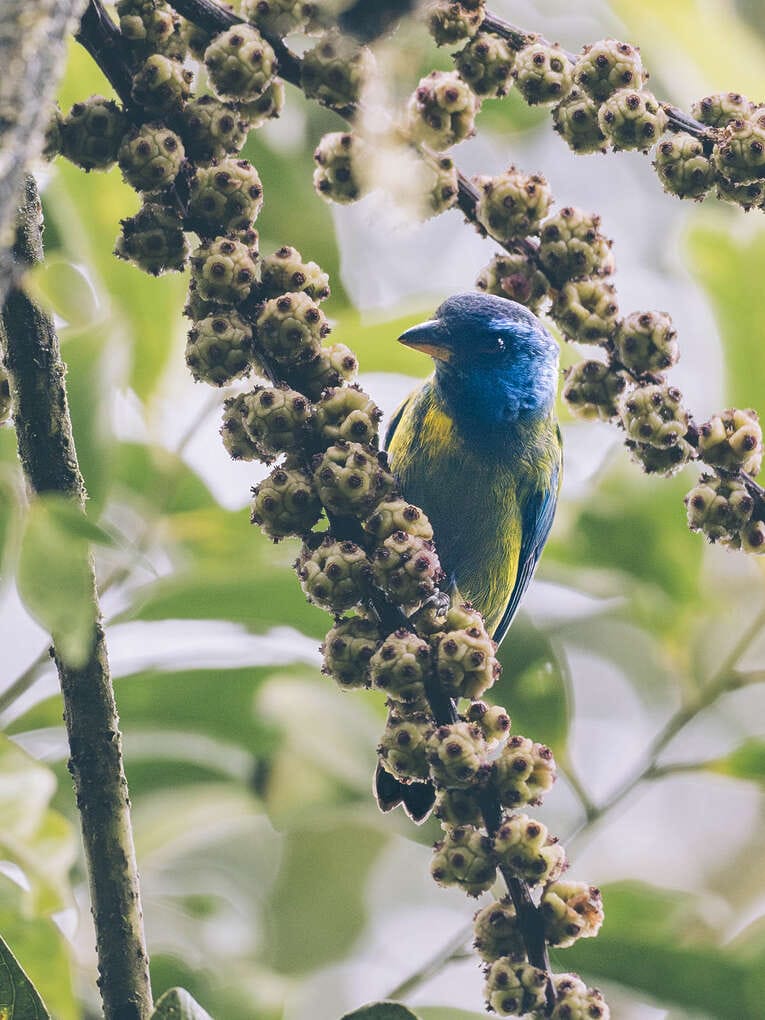
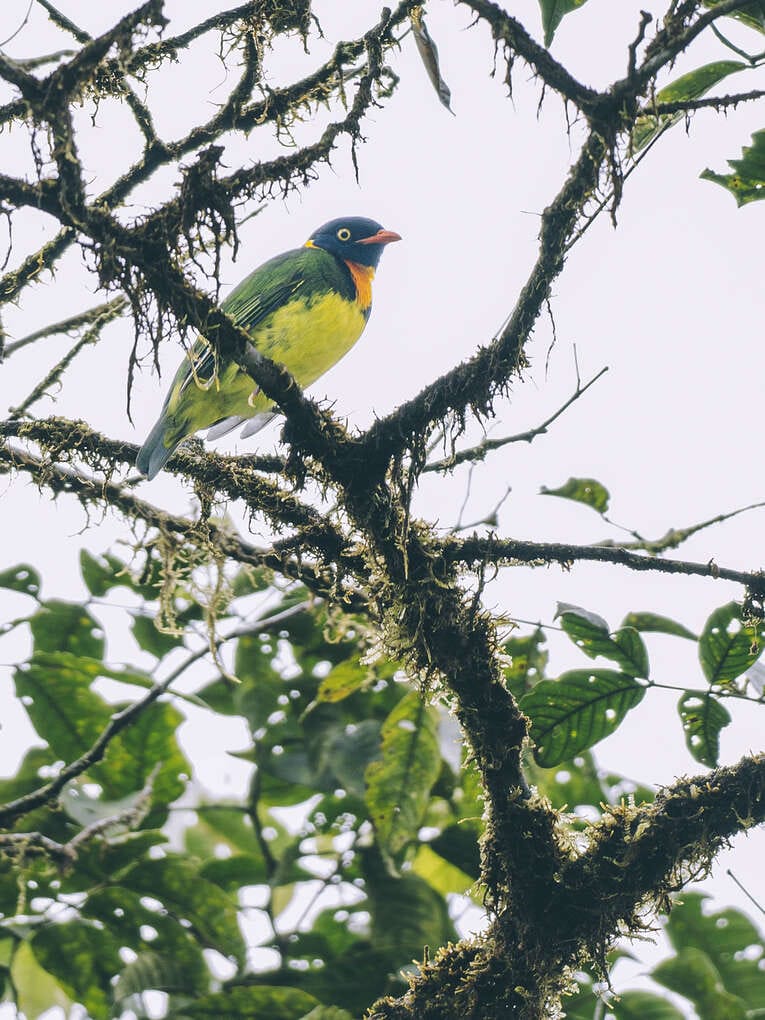
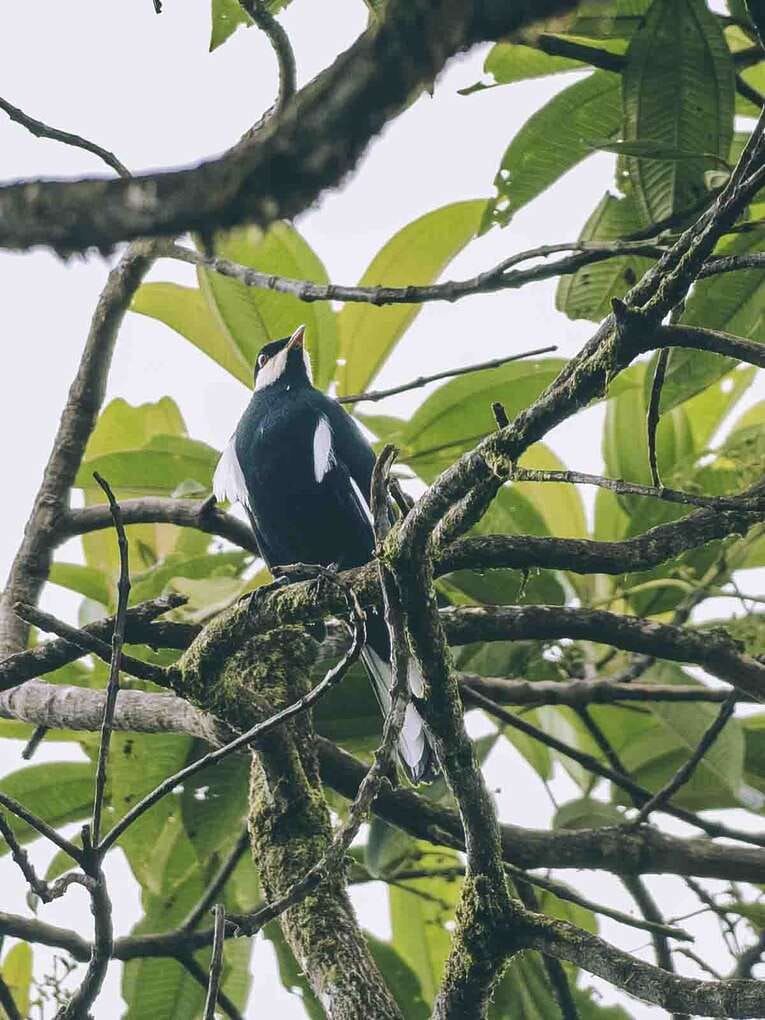
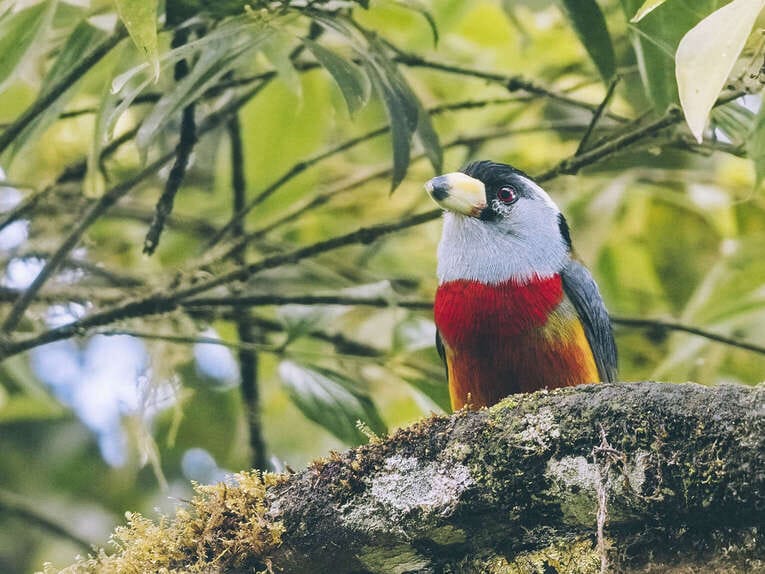
San Franciso
We continue on our way to San Francisco After only a few kilometers, we stop to pick up a local youth involved in a local frog conservation program
Mauricio supports the work of raising awareness among the population to try and stop this illegal poaching, and one of the ways of doing this is by educating the youngest members of the community And here too, tourism has a positive role to play, showing that by preserving the species, the community will be able to benefit from the arrival of tourists
This highly venomous frog is the subject of a lucrative illegal trade that threatens its very existence Mauricio explains that Europeans and Chinese are prepared to pay a fortune for this species
The task is immense and in 2024, several hundred frogs of the Oophaga family were seized at Bogota’s El Dorado airport
We set the car down at the entrance to a trail where we hope to spot the Diablito frog
On this day, the search for the frog proves complicated, but Mauricio goes in search of it and finally finds a specimen! By the time he shows us the impressive bright red frog, it has escaped without having had time to immortalize the moment!
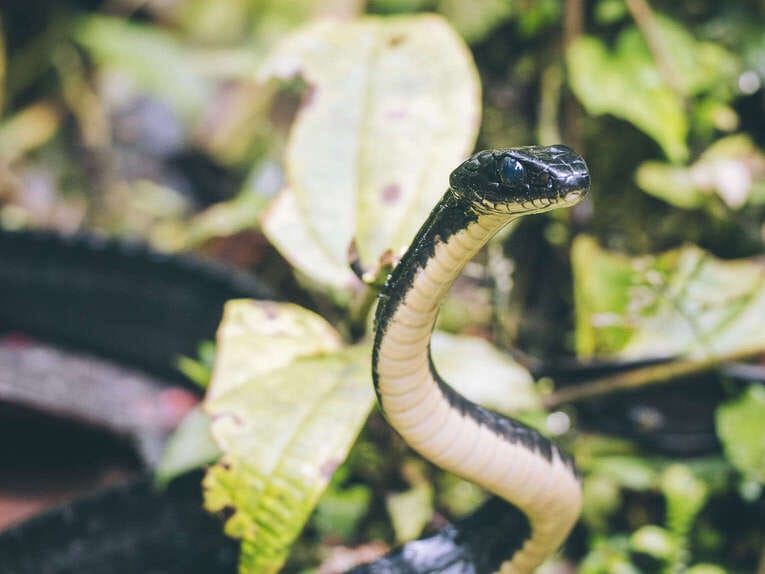
Reserve Awa “Piman” La Nutria
This indigenous reserve was created with Mauricio’s support, based on the model of the Rio Ñambi nature reserve
In addition to the creation of this nature reserve, the indigenous Awa people have launched an initiative to group together the region’s nature reserves In all, there is now a network of 6 nature reserves along the route between Altaquer and Tumaco, all contributing to environmental protection in the region
In the La Nutria nature reserve, you can also take advantage of various ecological and wildlife observation trails
Birding in Rio Ñambi
One of the best nature reserves for birdwatching
For over 20 years now, the Rio Ñambi nature reserve has been one of Colombia’s top birding destinations Scientists from all over the world come to study the species present, and birdwatchers flock here to observe endemic birds that are hard to see anywhere else but in the region
But even for neophytes, those who simply love nature, beauty and wildlife, the Rio Ñambi Nature Reserve is an absolute delight and a paradise for the senses! And with just binoculars, the spectacle is grandiose
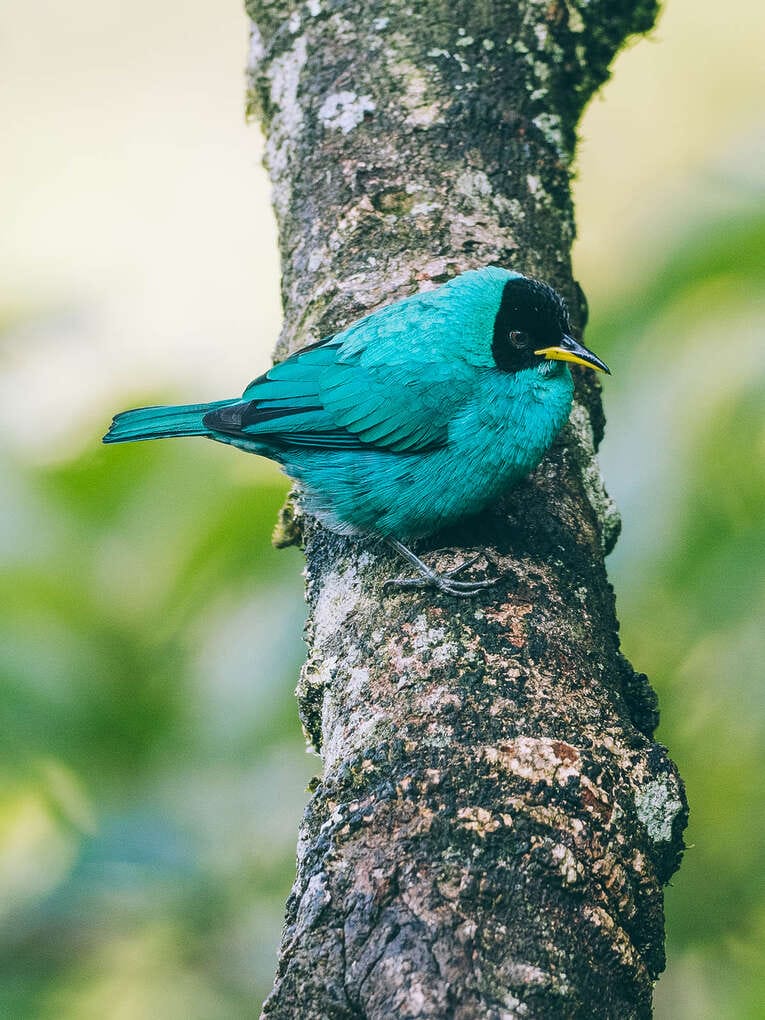
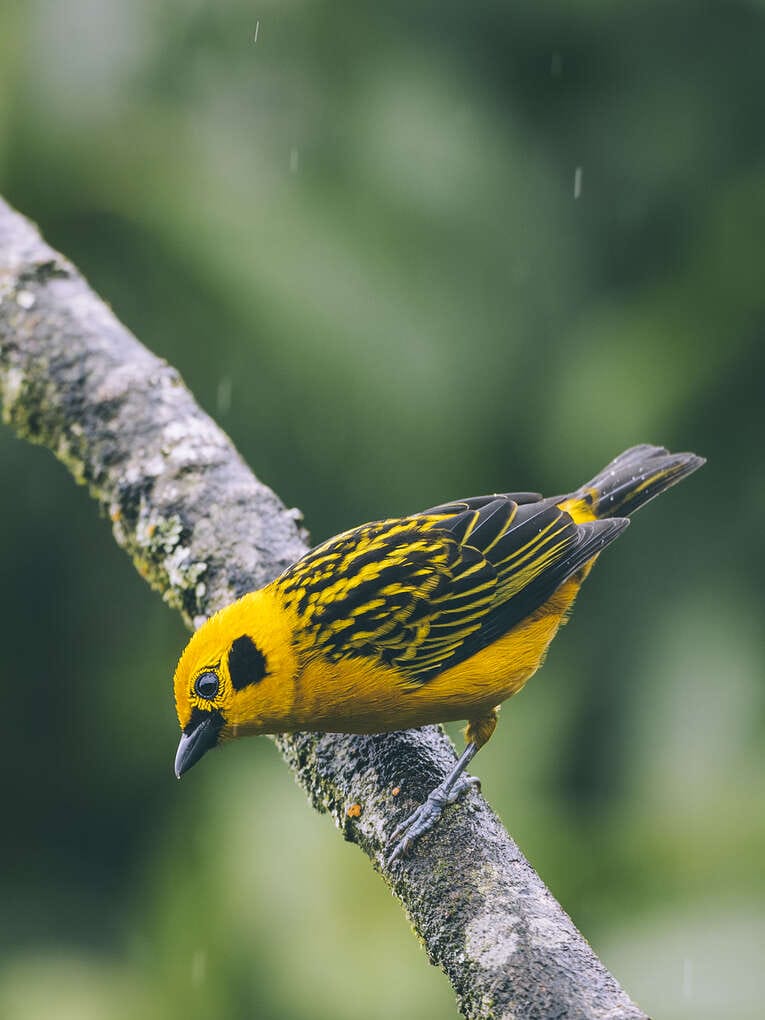
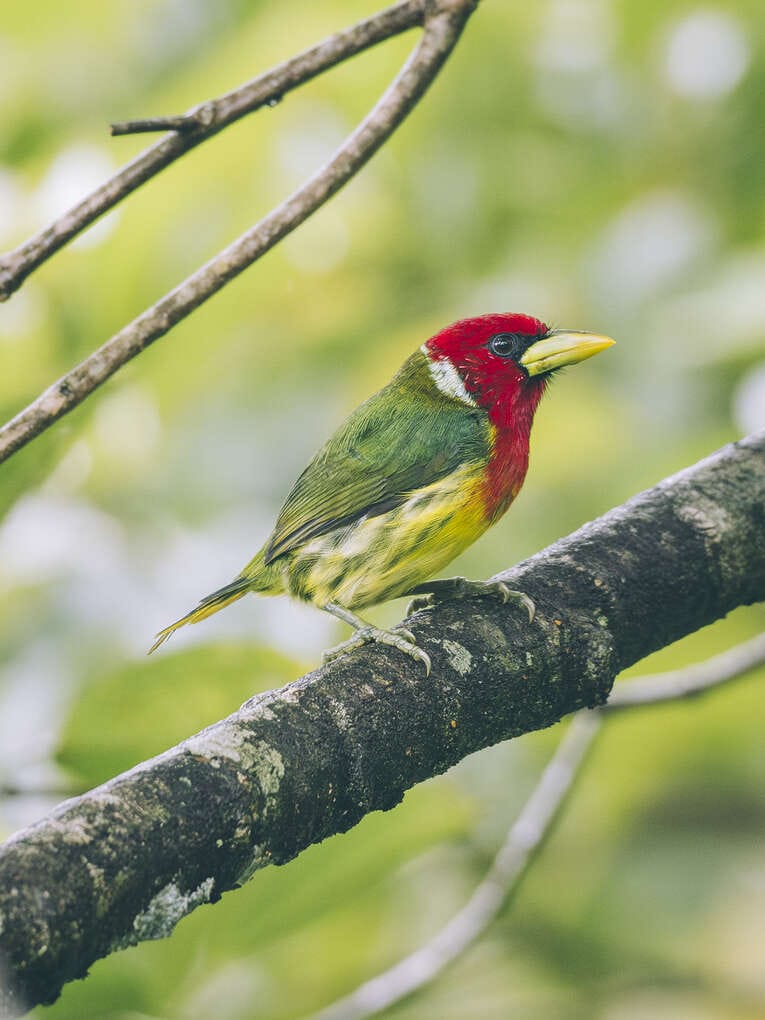
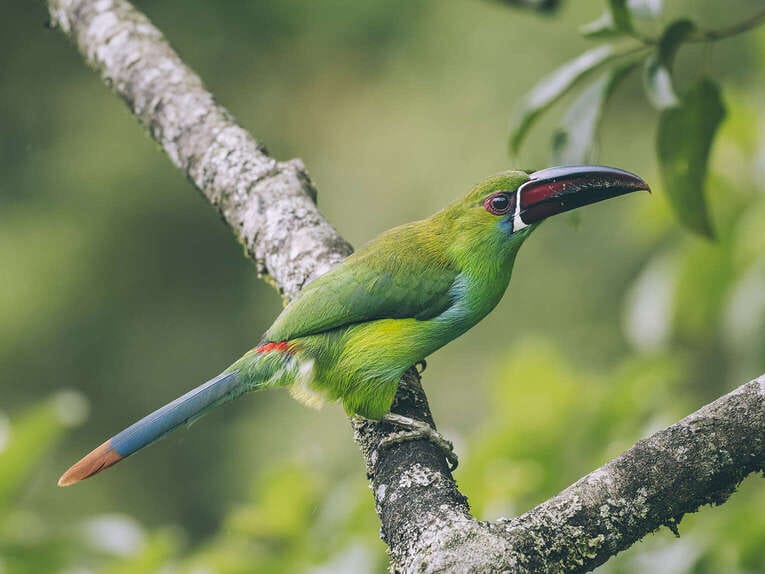
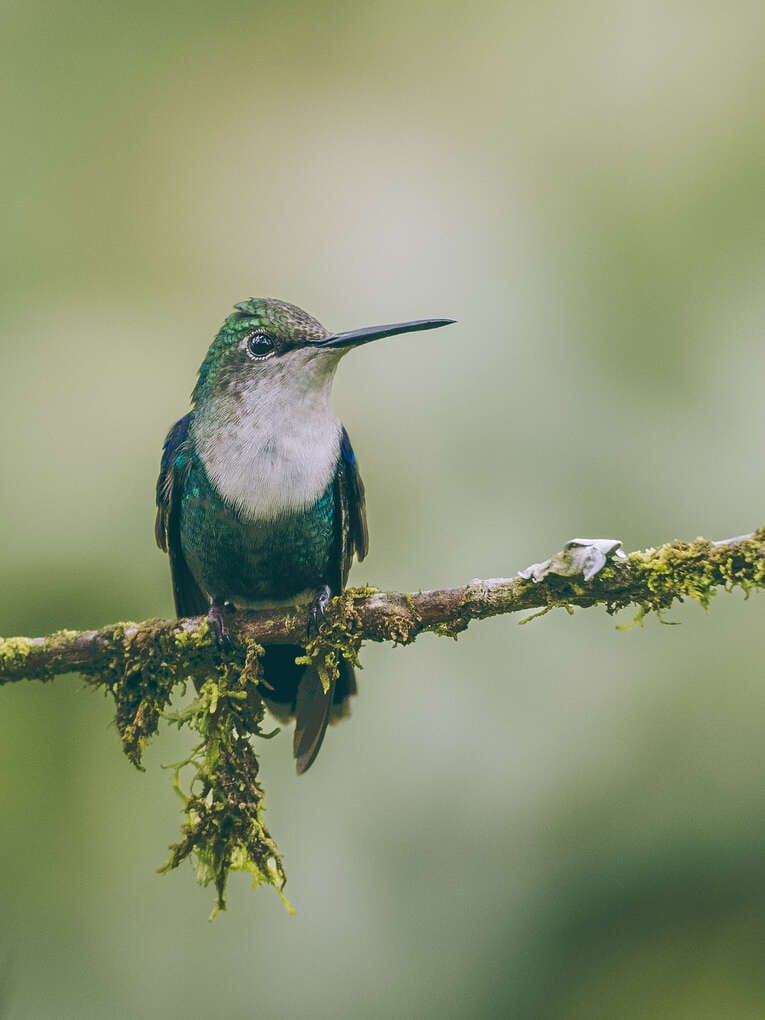
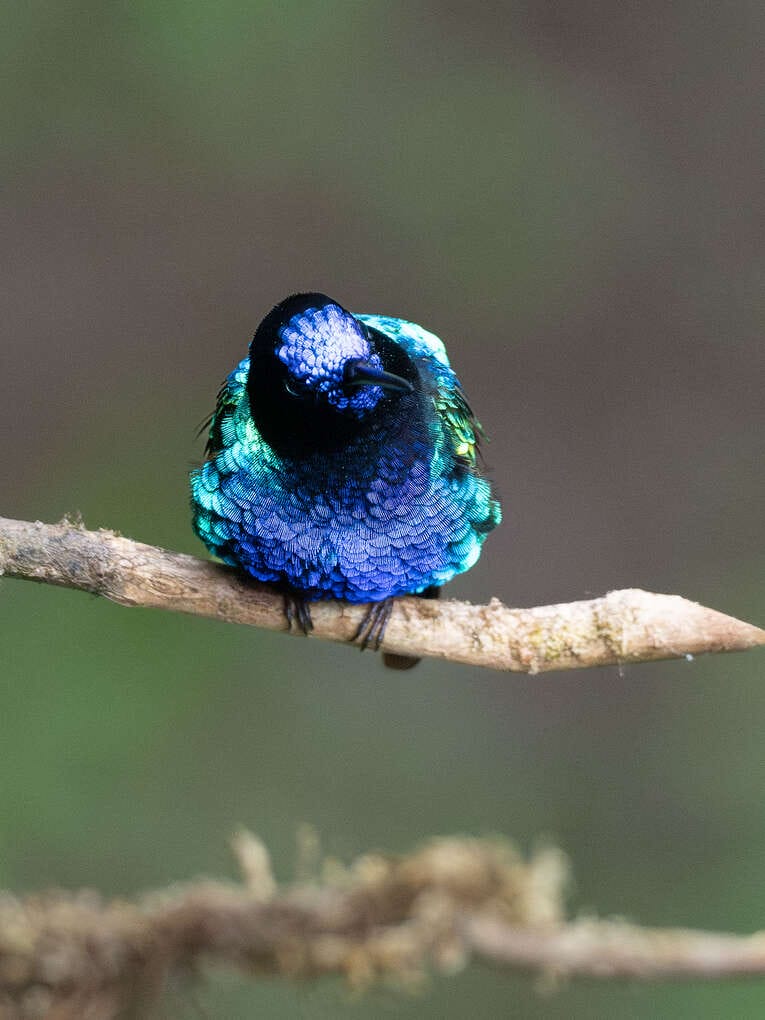
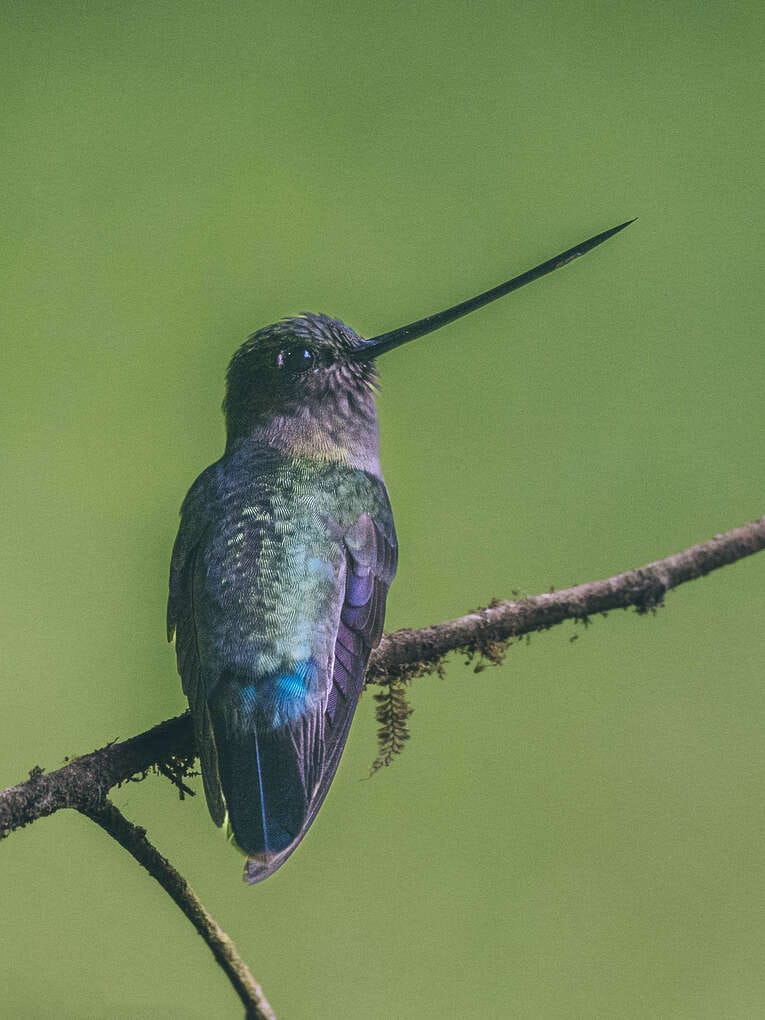
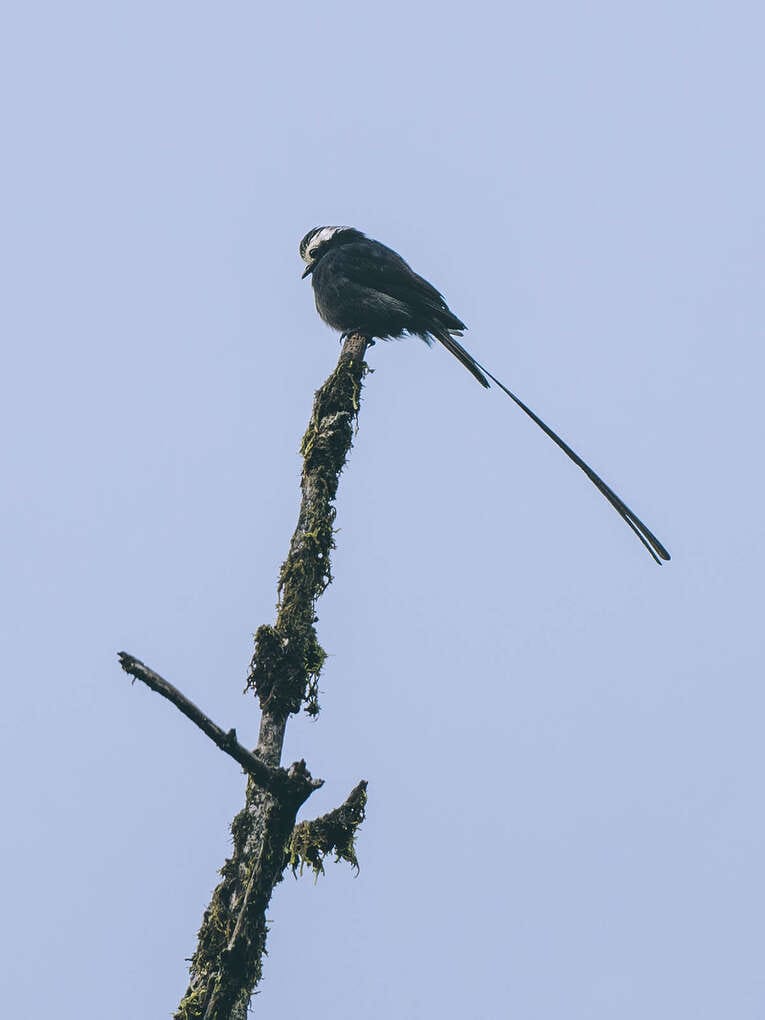
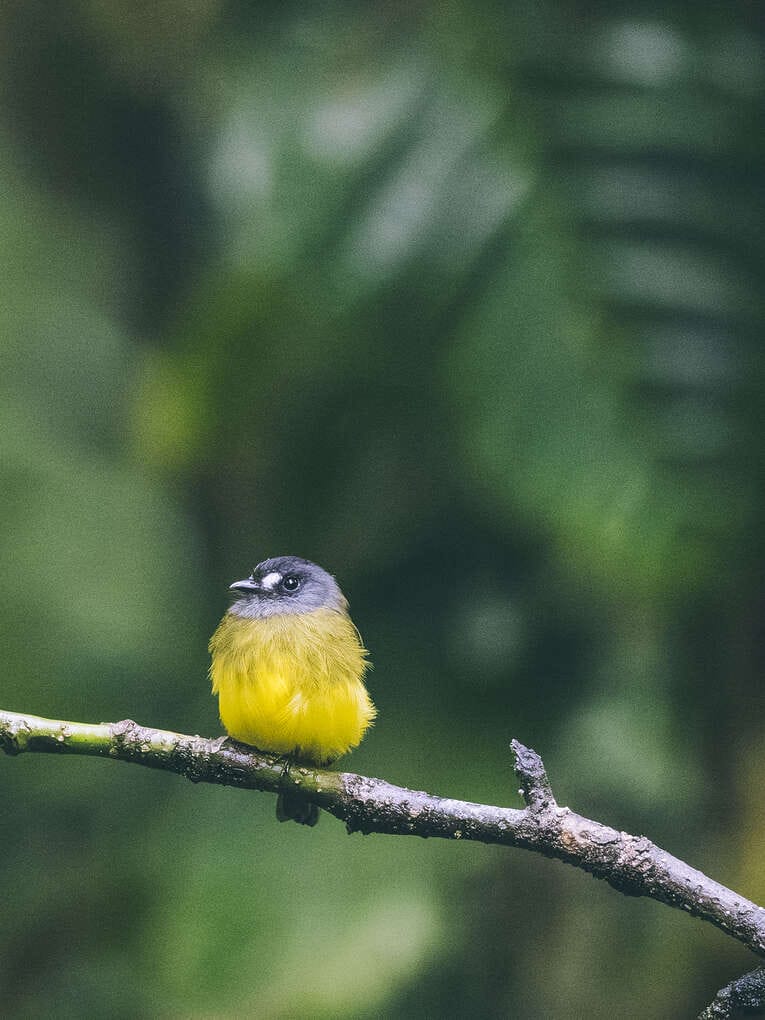
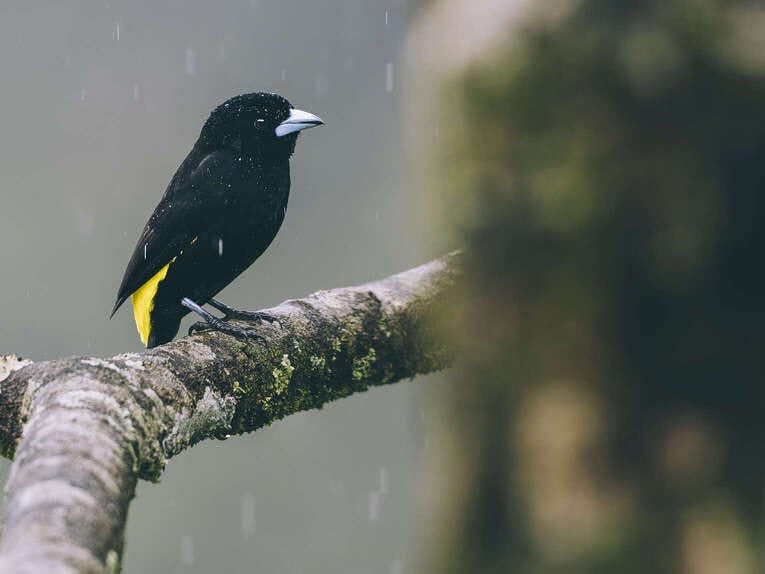
Contact to visit Rio Ñambi
Nature reserve near Pasto
Responsible tourism
The Rio Ñambi nature reserve is managed by an NGO set up by young people from the village of Altaquer in 1995 to promote environmental protection in an area hard hit by Colombia’s armed conflict Today, the reserve is considered an example of management and organization, and has served as a model for the creation of many other reserves in the region and more widely in Colombia
Rates to visit Rio Ñambi
If you can find your own accommodation nearby, or if you have your own vehicle and just want to visit the Rio Ñambi nature reserve for a day, it’s possible
Local guide
- Guide training fee: $40000 COP
- Specialized guide fee: $60000 COP
If you wish to include accommodation with your visit to Rio Ñambi, Mauricio offers two accommodation options:
Lodge close to the reserve
The lodge close to the reserve has feeders where you can easily observe many species of birds
- Price: $125000 COP per person
- Includes: overnight stay and full board (3 meals)
Lodge in the reserve
Ideally, you should spend at least one night inside the reserve, so that you can make the most of it, as we did The lodge is located in the middle of the primary forest, and offers double, family or dormitory rooms, as well as a catering service
- Price: $160000 COP per person
- Includes: overnight stay and full board (3 meals)
How to get to Altaquer
The Rio Ñambi nature reserve offices are located in the village of Altaquer, halfway between Pasto (155km) and Tumaco (130km)
From Pasto
There are two options for getting to Altaquer from Pasto:
Direct route
From the Pasto terminal, take the bus to Tumaco The problem is that there are only a few departures a day, so you’ll need to plan well in advance
- Ask for the “Aves y Flores Lodge” stop in Altaquer
- Duration: approx 4 hours
- Price: about $40000 COP
- Departures: 4:30 am, 8:30 am, 10:30 am, 1:15 pm, 3:30 pm, 7:45 pm
- Company: Transipiales
Route in 3 stages
First, take a minivan to Tuquerres From there, take a cab to Ricaurte or, better still, to Altaquer, where Rio Ñambi Nature Reserve staff can pick you up
- Fare Pasto – Tuquerres: approx $20000 COP per person (the buseta departs when full)
- Duration: approx 1h30
- Tuquerres – Ricaurte rate: approx $25000 COP per person
- Duration: approx 2 hours
From Tumaco
From Tumaco, the easiest way is to take the bus to Pasto and ask for the stop at Ask for the “Aves y Flores Lodge” stop or at the reserve office in Altaquer
- Ask for the “Aves y Flores Lodge” stop or the Altaquer stop and look for the reserve office
- Duration: approx 3 hours
- Price: approx $30000 COP
- Departures from Tumaco: 4 am, 5 am, 9:30 am, 3:30 pm, 7:30 pm
- Company: Transipiales



